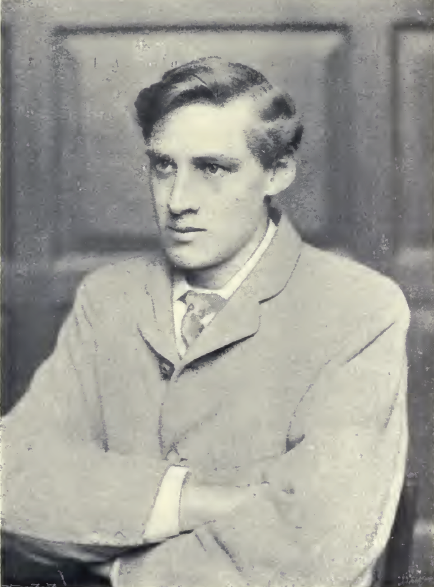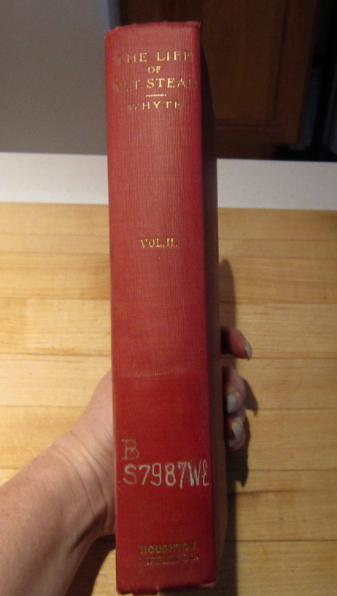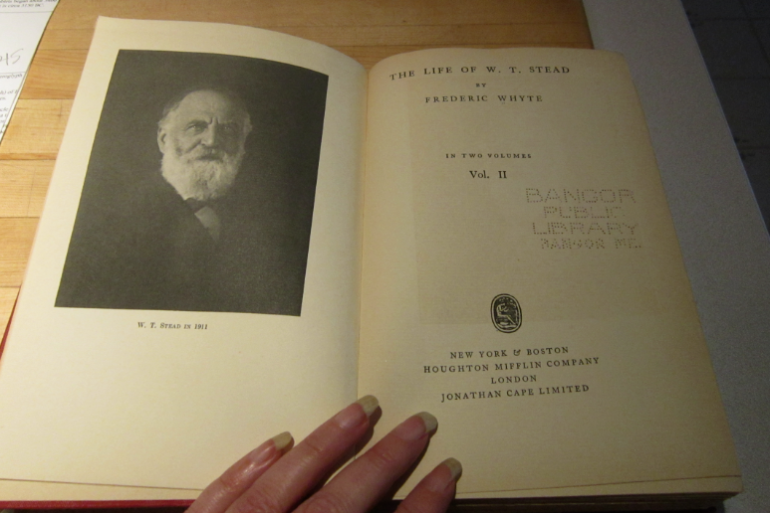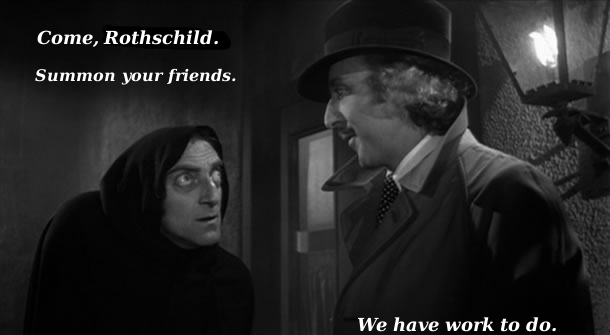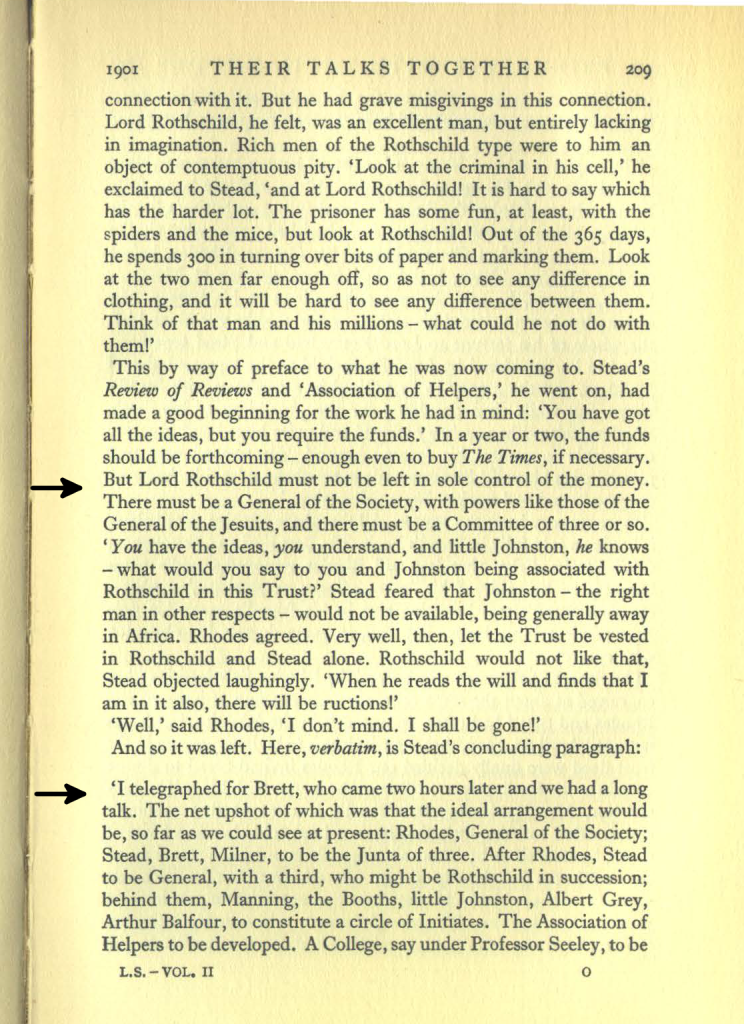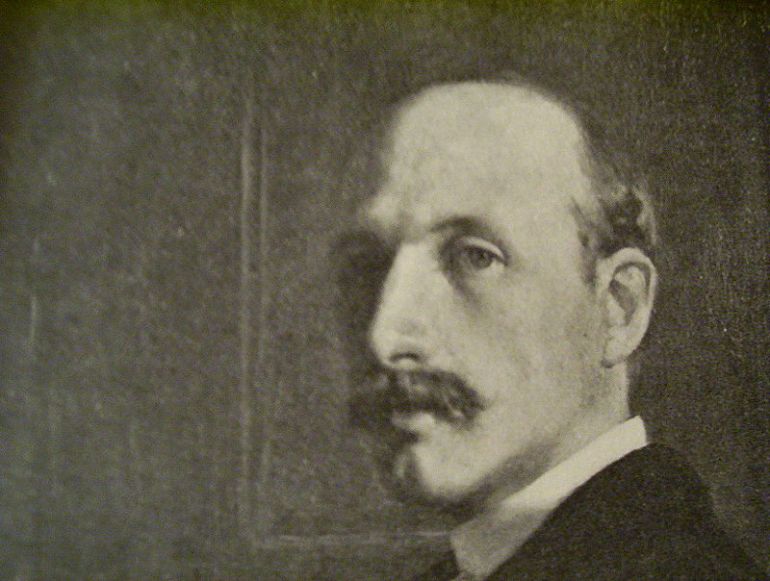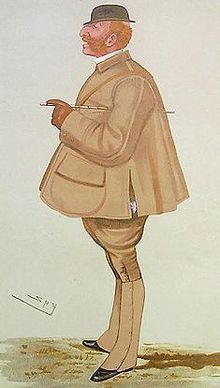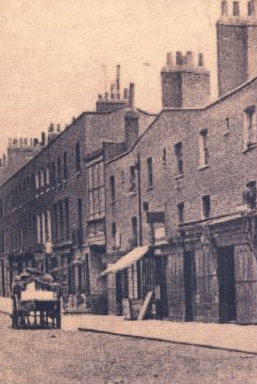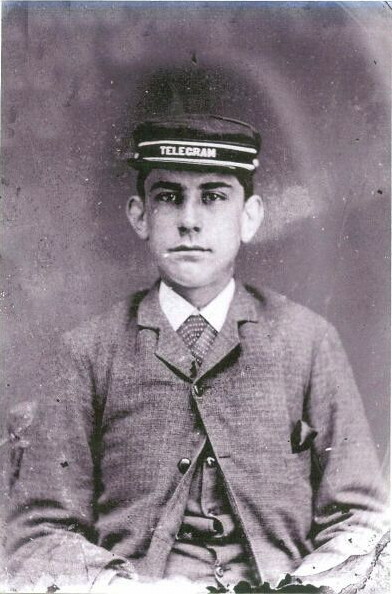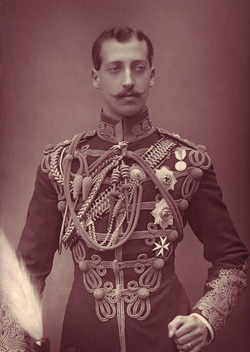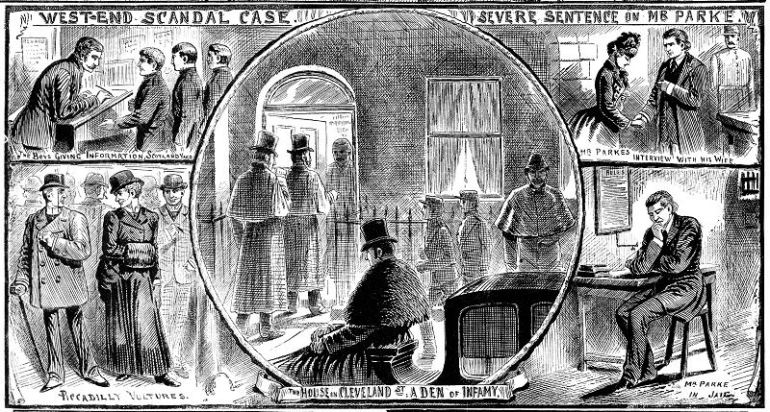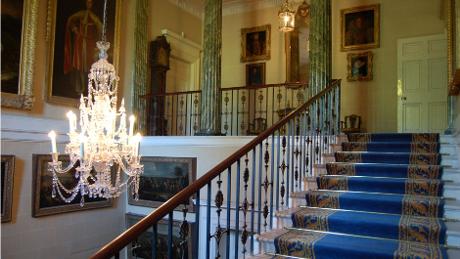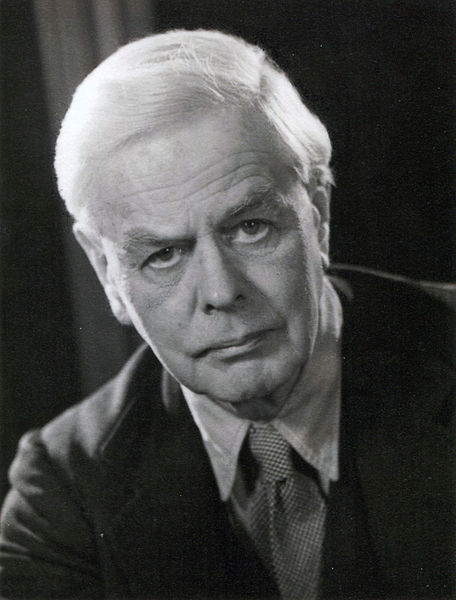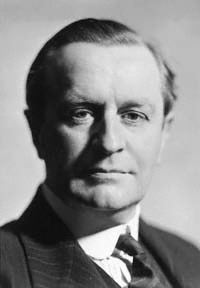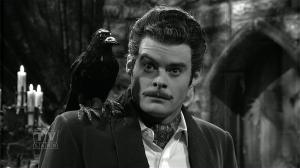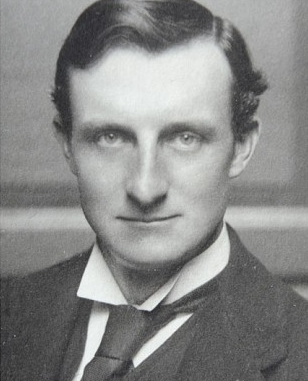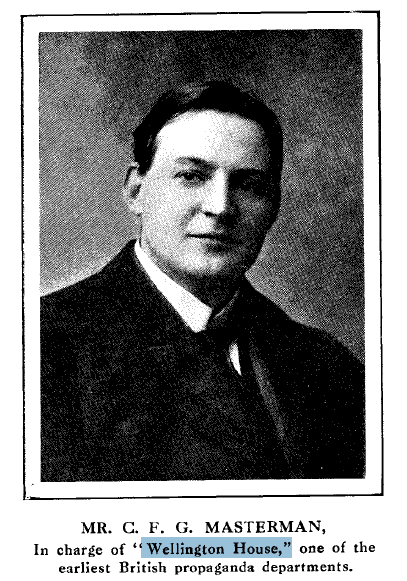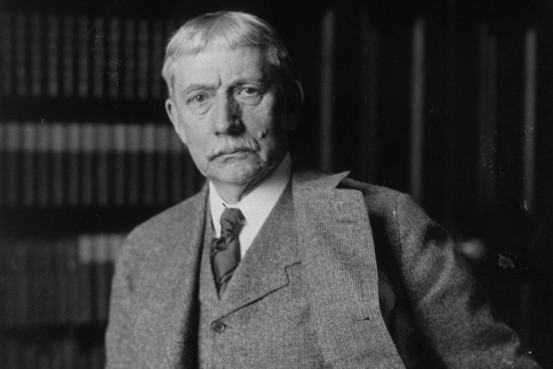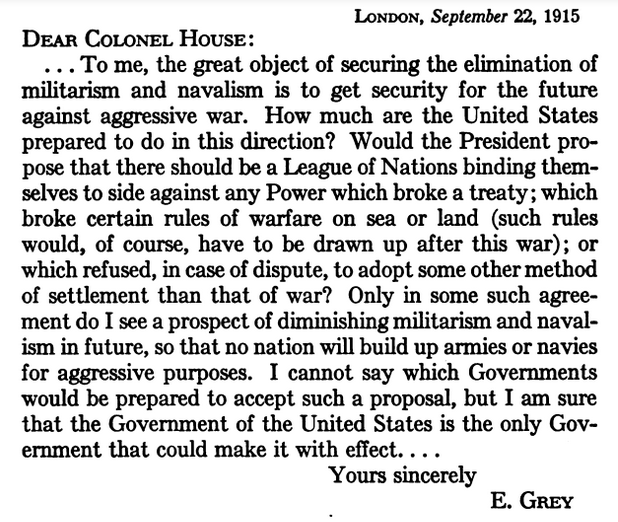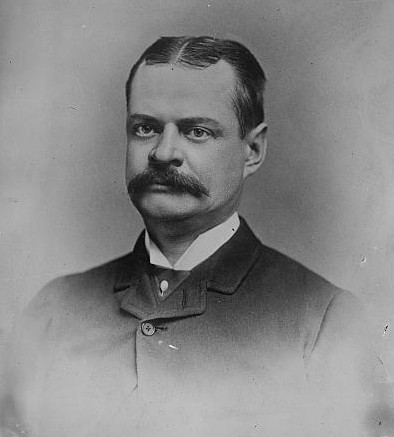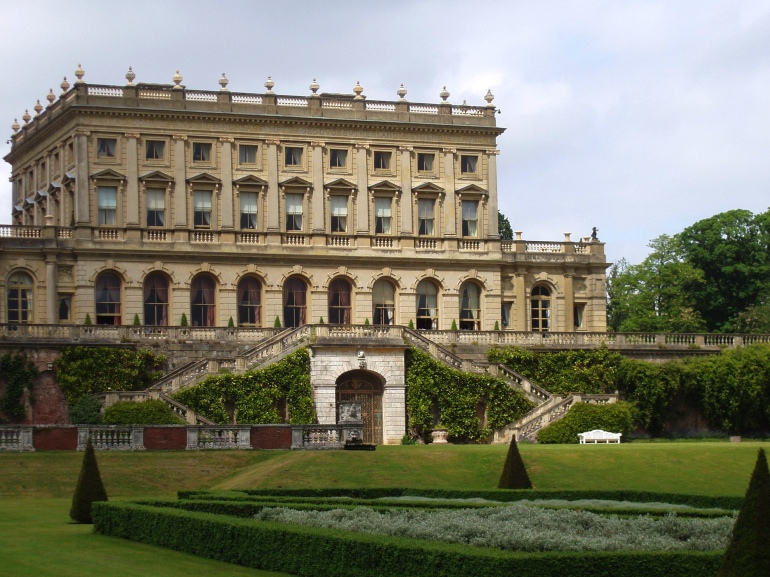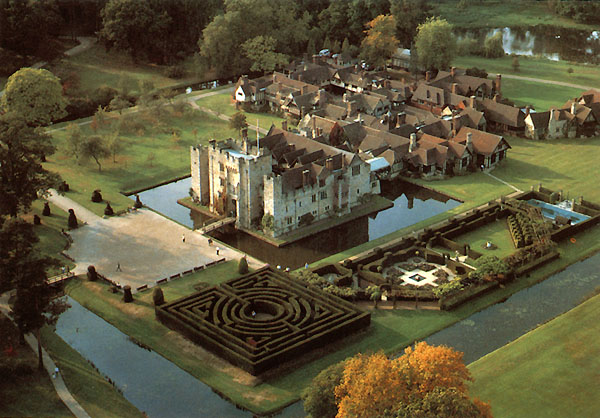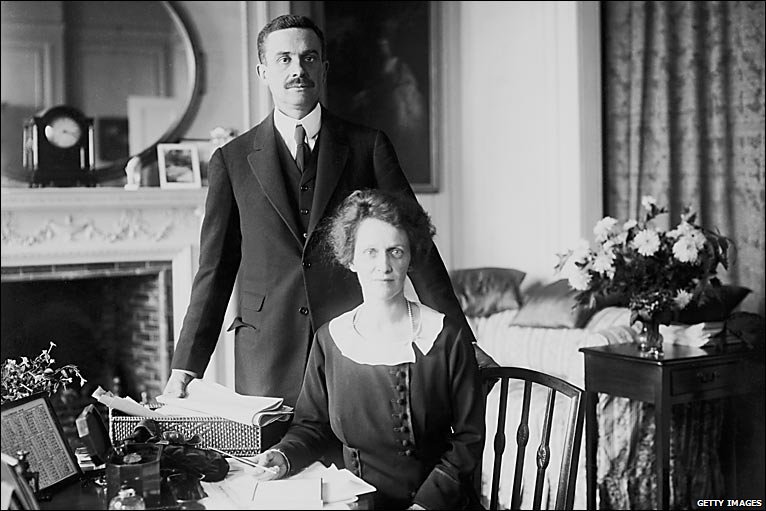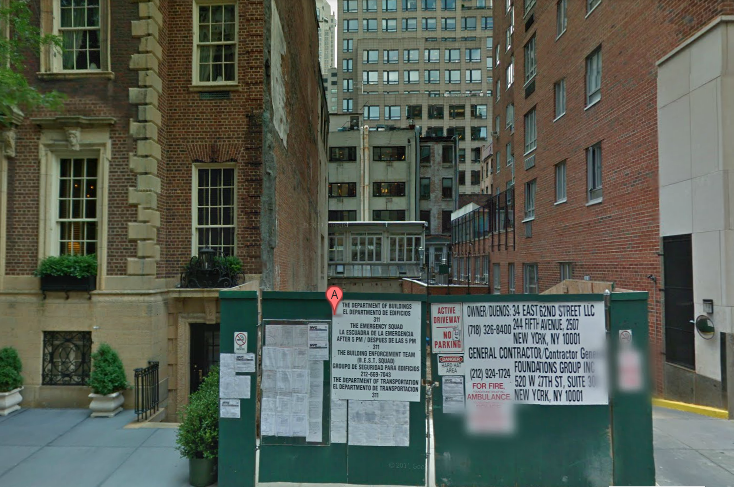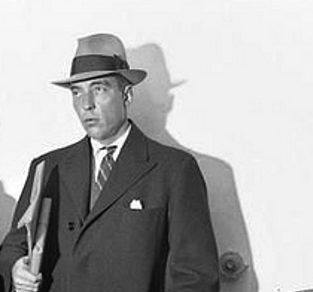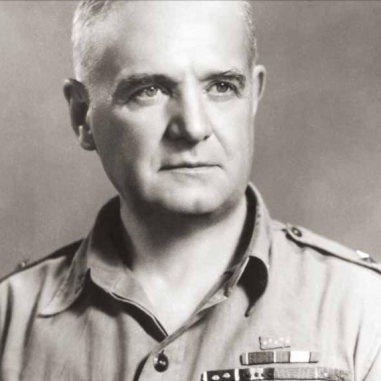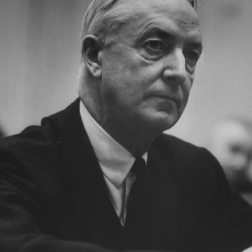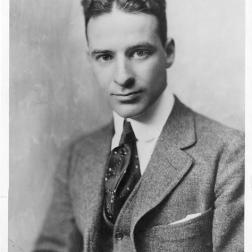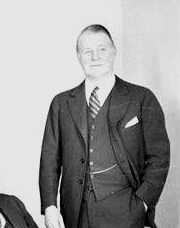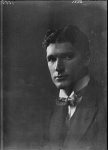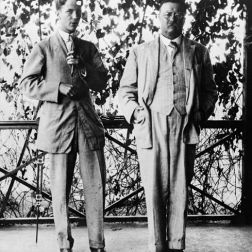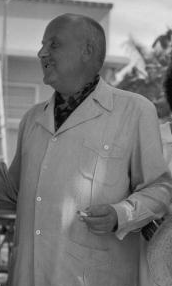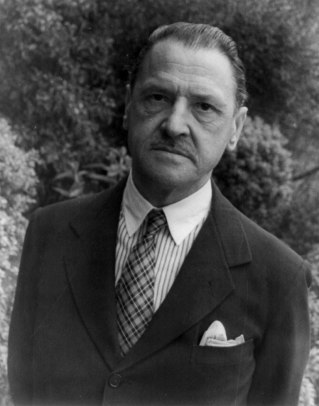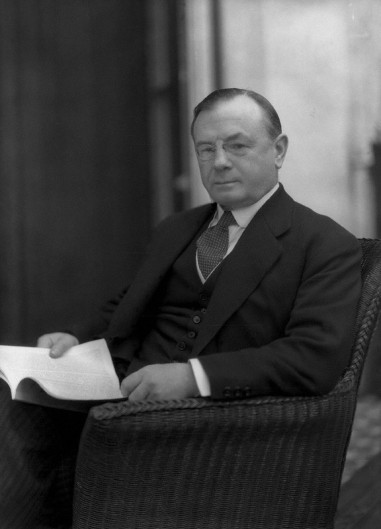mikemcclaughry.wordpress.com
The Round Table
– What is it Really –
There’s been a lot of hype about a secret society that Cecil John Rhodes created, which erroneously gets given the name – the Round Table.
This library article will attempt to help sort out what really happened on a documentable basis – no “conspiracy theories”.
To do this, let’s start with the secret society that Cecil Rhodes actually did form. The earliest reference to which was “Confession of Faith”, as revealed by William Thomas Stead in his book of 1902.
Rather than duplicating the details of my already completed research on that particular item, I’ll just direct you to my library article called: Cecil John Rhodes – ‘Confession of Faith’ 1877 in the Just Dox (British Intelligence) section.
The original source, that catapulted ‘Confession of Faith’ into the public eye, was a book published by his friend and mentor William Thomas Stead. It was entitled: The Last Will and Testament of Cecil J. Rhodes and was published in 1902. You can read it for free at the Internet Archive.
Now from that, let’s briefly just take up the part that matters for the purposes of this article.
Cecil Rhodes – ‘Confession of Faith’, June 1877
“Why should we not form a secret society with but one object, the furtherance of the British Empire and the bringing of the whole world under British rule, for the recovery of the United States, for making the Anglo Saxon race but one Empire? What a dream, but yet it is probable, it is possible.”
In Stead’s book, there are several passages that discuss this “secret society”, where Stead is now included in this shadowy arrangement.
That was my idea as I expressed it. That was Mr. Rhodes’s idea also. It was “our idea” his idea of the secret society broadened and made presentable to the public without in any way revealing the esoteric truth that lay behind. Mr. Rhodes recognised this and eagerly welcomed it.
– The Last Will and Testament of Cecil J. Rhodes published in 1902
Stead also gives us an approximate time period when this society is already in place. He quotes from a letter that Cecil had sent him when he was upset about Stead’s journalistic attacks (through Review of Reviews) against the Boer War.
That is the curse which will be fatal to our ideas – insubordination. Do not you think it is very disobedient of you? How can our Society be worked if each one sets himself up as the sole judge of what ought to be done? Just look at the position here. We three are in South Africa, all of us your boys […] I myself, Milner and Garrett, all of whom learned […]
– The Last Will and Testament of Cecil J. Rhodes published in 1902, p. 109, Cecil Rhodes to William Stead
Curiously, there are several cases of dissembling by Stead in his book. For example, he refuses to name Lord Rothschild as such, when he was added to Cecil’s will, but instead calls him “X”. Such is also the case with this society. Stead seems to go out of his way to act like it had not been ever formed, when it had been, as you will soon see.
So it may be that someone coming after Mr. Rhodes may prosper exceedingly in founding the great Order of which Mr. Rhodes did dream.
– The Last Will and Testament of Cecil J. Rhodes published in 1902, p. 109, Cecil Rhodes to William Stead, p. 115
It also seems somewhat of an insult of Milner, if you understand the history here, because Milner had Rhodes remove Stead from the will later on – there seems to have been some sort of power-play going on between Milner and Stead.
Backing up little here, it was on 4 April 1889, that Stead first met Rhodes. In light of the expose Stead had done that targeted heavily the nobility, the “upper crust” of the British, this first approach, followed immediately by showering Stead with money, strikes me as some sort of intelligence infiltration/control operation done by those very nobility.
To read these articles Stead penned in July of 1885, please see this wonderful website archiving his works. The articles by Stead were exposing the London slave trade wherein young virgin girls were sold into sexual slavery, and many of the customers were the British nobility.
Professor Quigley, drawing from Sir Whytes biography of Stead, tells us about Rhodes’ interest in Stead and when it began.
Although Rhodes accepted Stead’s ideas, he did not decide that Stead was the man he wanted to be his lieutenant in the secret society until Stead was sent to prison in 1885 for his articles on organized vice in the Pall Mall Gazette. This courageous episode convinced Rhodes to such a degree that he tried to see Stead in prison but was turned away.
Quigley then tells us about the “trap” or “bait” – my words – that Rhodes used to gain influence with Stead.
After Stead was released, Rhodes did not find the opportunity to meet him until 4 April 1889. The excitement of that day for Stead can best be shown by quoting portions of the letter which he wrote to Mrs. Stead immediately after the conference. It said:
“Mr. Rhodes is my man! I have just had three hours talk with him. He is full of a far more gorgeous idea in connection with the paper than even I have had. I cannot tell you his scheme because it is too secret. But it involves millions. He had no idea that it would cost £250,000 to start a paper. But he offered me down as a free gift £20,000 to buy a share in the P.M. Gazette as a beginning. Next year he would do more. He expects to own before he dies 4 or 5 millions, all of which he will leave to carry out the scheme of which the paper is an integral part. He is giving £500,000 to make a railway to Matabeleland, and so has not available, just at this moment, the money necessary for starting the morning paper. His ideas are federation, expansion, and consolidation of the Empire […]
He took to me. Told me some things he has told no other man—save Lord Rothschild— and pressed me to take the £20,000, not to have any return, to give no receipt, to simply take it and use it to give me a freer hand on the P.M.G. It seems all like a fairy dream […]
*P.M.G. = Pall Mall Gazette – Stead was the Editor.
– Anglo American Establishment by Professor Quigley – this book was written in 1949 but published posthumously in 1981; Chapter 1.
“It seems all like a fairy dream” – truly encapsulates what went on here. In modern parlance we call that schmoozing.
Later that year, in November of 1889, Stead and Rhodes had a long conversation prior to Rhodes leaving London for Africa again, and Stead includes a letter that he wrote to Rhodes in February of 1890, where he directly discusses the political outlet of Rhodes’ ideals – creating a new paper.
I kept no written notes of that memorable conversation. But the spirit and drift of our talk the following extract from a letter which I wrote to Mr. Rhodes three months later may suffice to illustrate:
I have been thinking a great deal since I first saw you about your great idea (that of the Society) and the more I think the more it possesses me, and the more I am shut up to the conclusion that the best way in which I can help towards its realisation is, as you said in a letter to me last month, by working towards the paper […]
– The Last Will and Testament of Cecil J. Rhodes published in 1902
A year later (November 25th, 1890) Cecil wrote :
My dear Stead, I am getting on all right, and you must remember that I am going on with the same ideas as we discussed after lunch at Sir Charles Mills’. … I am sorry I never met Booth. I understand what he is exactly. . . . When I come home again I must meet Cardinal Manning, but I am waiting until I make my Charter a success before we attempt our Society you can understand.
– The Last Will and Testament of Cecil J. Rhodes published in 1902
The plan for a new paper, financed by Rhodes, was well underway by the time this letter reached him. So much so, that Stead had actually left his previous job at the Pall Mall Gazette (where Milner and Garrett had been his protege’s) and was preparing for the publication of the very first issue of their new paper, Stead titled it: REVIEW OF REVIEWS.
The first issue was on January 15th, 1891.
Stead, when describing why Cecil was supporting this effort, hints at the structure of this secret society.
He regarded it as a practical step towards the realisation of his great idea, the reunion of the English-speaking world through the agency of a central organ served in every part of the world by affiliated Helpers.
I am including the extracts from the manifesto, as Stead calls it, that appeared in the first issue of Review of Reviews. I suspect that Stead is, in some cloaked fashion, somehow one of Catholicism’s covert operatives – perhaps even a Jesuit. I say that for many reasons, which I’m not going to go into in this article, but I think the odd acknowledgement of the Catholic church (and a number of other points along that same line) just really stand out.
To ALL ENGLISH-SPEAKING FOLK.
There exists at this moment no institution which even aspires to be to the English-speaking world what the Catholic Church in its prime was to the intelligence of Christendom. To call attention to the need for such an institution, adjusted, of course, to the altered circumstances of the New Era. to enlist the co-operation of all those who will work towards the creation of some such common centre for the inter-communication of ideas, and the universal diffusion of the ascertained results of human experience in a form accessible to all men, are the ultimate objects for which this REVIEW has been established.
We shall be independent of party, because, having a very clear and intelligible faith, we survey the struggles of contending parties from the standpoint of a consistent body of doctrine, and steadily seek to use all parties for the realisation of our ideals.
These ideals are unmistakably indicated by the upward trend of human progress and our position in the existing economy of the world. Among all the agencies for the shaping of the future of the human race none seem so potent now and still more hereafter as the English-speaking man.
Already he begins to dominate the world. The Empire and the Republic comprise within their limits almost all the territory that remains empty for the overflow of the world. Their citizens, with all their faults, are leading the van of civilisation, and if any great improvements are to be made in the condition of mankind, they will necessarily be leading instruments in the work. Hence our first starting-point will be a deep and almost awestruck regard for the destinies of the English-speaking man. To use Milton’s famous phrase, faith in “God’s Englishmen” will be our inspiring principle. To make the Englishman worthy of his immense vocation, and, at the same time, to help to hold together and strengthen the political ties which at present link all English-speaking communities save one in a union which banishes all dread of internecine war, to promote by every means a fraternal union with the American Republic, to work for the Empire, to seek to strengthen it, to develop it, and, when necessary, to extend it, these will be our plainest duties.
Imperialism within limits defined by common sense and the Ten Commandments is a very different thing from the blatant Jingoism which some years ago made the very name of empire stink in the nostrils of all decent people. The sobering sense of the immense responsibilities of our Imperial position is the best prophylactic for the frenzies of Jingoism.
And in like manner the sense of the lamentable deficiencies and imperfections of “God’s Englishmen,” which results from a strenuous attempt to make them worthy of their destinies, is the best preservative against that odious combination of cant* and arrogance which made Heine declare that the Englishman was the most odious handiwork of the Creator. To interpret to the English-speaking race the best thought of the other peoples is one among the many services which we would seek to render to the Empire.
*cant = hypocritical and sanctimonious talk, typically of a moral, religious, or political nature.
We believe in God, in England, and in Humanity. The English-speaking race is one of the chief of God’s chosen agents for executing coming improvements in the lot of mankind. If all those who see that could be brought into hearty union to help all that tends to make that race more fit to fulfil its providential mission, and to combat all that hinders or impairs that work, such an association or secular order would constitute a nucleus or rallying point for all that is most vital in the English world, the ultimate influence of which it would be difficult to overrate.
This is the highest of all the functions to which we aspire. Our supreme duty is the winnowing out by a process of natural selection, and enlisting for hearty service for the commonweal all those who possess within their hearts the sacred fire of patriotic devotion to their country.
Who is there among the people who has truth in him, who is no self-seeker, who is no coward, and who is capable of honest, painstaking effort to help his country? For such men we would search as for hid treasures.
They are the salt of the earth and the light of the world, and it is the duty and the privilege of the wise man to see that they are like cities set on the hill which cannot be hid.
The great word which has now to be spoken in the ears of the world is that the time has come when men and women must work for the salvation of the State with as much zeal and self-sacrifice as they now work for the salvation of the individual. To save the country from the grasp of demons innumerable, to prevent this Empire or this Republic becoming an incarnate demon of lawless ambition and cruel love of gold, how many men or women are willing to spend even one hour a month or a year? The religious side of politics has not yet entered the minds of men.
What is wanted is a revival of civic faith, a quickening of spiritual life in the political sphere, the inspiring of men and women with the conception of what may be done towards the salvation of the world, if they will but bring to bear upon public affairs the same spirit of self-sacrificing labour that so many thousands manifest in the ordinary drudgery of parochial and evangelistic work. It may, no doubt, seem an impossible dream.
That which we really wish to found among our readers is in very truth a civic church, every member of which should zealously as much as it lay within him preach the true faith, and endeavour to make it operative in the hearts and heads of its neighbours. Were such a church founded it would be as a great voice sounding out over sea and land the summons to all men to think seriously and soberly of the public life in which they are called to fill a part. Visible in many ways is the decadence of the Press.
The mentor of the young democracy has abandoned philosophy, and stuffs the ears of its Telemachus with descriptions of Calypso’s petticoats and the latest scandals from the Court. All the more need, then, that there should be a voice which, like that of the muezzin from the Eastern minaret, would summon the faithful to the duties imposed by their belief.
This, it may be said, involves a religious idea, and when religion is introduced harmonious co-operation is impossible. That was so once; it will not always be the case.
To establish a periodical circulating throughout the English-speaking world, with its affiliates or associates in every town, and its correspondents in every village, read as men used to read their Bibles, not to waste an idle hour, but to discover the will of God and their duty to man, whose staff and readers alike are bound together by a common faith and a readiness to do common service for a common end that, indeed, is an object for which it is worth while to make some sacrifice. Such a publication so supported would be at once an education and an inspiration; and who can say, looking at the present condition of England and of America, that it is not needed?
By 1891, Stead had convinced Rhodes to shift his ideas from the glory of the British Empire to the glory of the English-speaking races, much as you see this manifesto, as Stead calls it, going on about. Stead talks about this change in Rhodes, when he met with him after the first publication of Review of Reviews.
[as compared to 1889 when they first met]
But in 1891, abandoning in no whit his devotion to his own country, he expressed his deliberate conviction that English-speaking reunion was so great an end in itself as to justify even the sacrifice of the monarchical features and isolated existence of the British Empire. At our first conversation in 1889 he had somewhat demurred to this frank and logical acceptance of the consequences of his own principles; but in 1891 all hesitation disappeared, and from that moment the ideal of English-speaking reunion assumed its natural and final place as the centre of his political aspirations. He resumed very eagerly his conversation as to the realisation of his projects.
– The Last Will and Testament of Cecil J. Rhodes published in 1902, William Stead, p p 102 103
This private meeting, which was just a couple weeks after a splash like that made in the pond of Slavemaster politics, is when Rhodes revealed that he had discussed “our ideas” with two other men.
He was in high spirits, and expressed himself as delighted with the work which I had done in founding the REVIEW of REVIEWS, and especially with the effort which was made to secure the co-operation of the more public-spirited persons of our way of thinking in every constituency in the country, which formed the inspiration of the Association of Helpers.
“You have begun,” said he, “to realise my idea. In the REVIEW and the Association of Helpers you have made the beginning which is capable afterwards of being extended so as to carry out our idea.”
We then discussed the persons who should be taken into our confidence. At that time he assured me he had spoken of it to no one, with the exception of myself and two others.
He authorised me to communicate with two friends, now members of the Upper House, who were thoroughly in sympathy with the gospel according to the Pall Mall Gazette, and who had been as my right and left hands during my editorship of that paper.
– The Last Will and Testament of Cecil J. Rhodes published in 1902, William Stead, p p 102 103
Do note that he does not mention Lord Esher, for some strange reason – perhaps the same reason he doesn’t name “X” as being Lord Rothschild? Protecting the highest levels? Esher had been in Parliament, but had retired from that in 1885 citing that he preferred a “behind the scenes role”.
For the statement – “now members of the Upper House” Garett however, did have a Parliamentary position in Africa, “Victoria East”, in the more relevant time period to Stead’s 1902 book. He was elected in 1898 and he immediately took a foremost place in the house of assembly, and in the two heated sessions preceding the Boer War he was the most persuasive, speaker on the “progressive” (i.e. British) side, warmly supporting Cecil Rhodes and the policy of Lord (then Sir Alfred) Alfred Milner.
So, it makes sense that these two protegees, Milner and Garrett, were brought in to the “society”.
That’s what the “right and left hands” reference is about then.
It is referring to Alfred Milner and Edmund Garett (full name Fydell Edmund Garett).
This is Garrett.
…. with Rhodes but with his two former protégés from the Pall Mall Gazette, Alfred Milner and Edmund Garrett.*
[*mispelled by Quigley – should be Garett]
– Anglo American Establishment by Professor Quigley – this book was written in 1949 but published posthumously in 1981; Chapter 1.
Although Stead does not go into the details of this arranged meeting in his book, other than an odd stand-alone mentions here and there of names like “Association of Helpers”, Professor Quigley does.
What’s interesting here, however, is that per Stead, Rhodes authorised him to talk to Milner and Garrett, but Quigley discusses a structure involving Lord Esher, so apparently Milner must have brought Esher into the mix.
Reginald Baliol Brett, later known as Lord Esher
Quigley tells us about the same conversation Stead mentioned, between he and Rhodes in February of 1891, but Quigley goes into much more detail about it.
First Quigley tells us –
About the same time, in February 1891, Stead and Rhodes had another long discussion about the secret society. First they discussed their goals and agreed that, if necessary in order to achieve Anglo-American unity, Britain should join the United States. Then they discussed the organization of the secret society and divided it into two circles: an inner circle, “The Society of the Elect”, and an outer circle to include “The Association of Helpers” and The Review of Reviews (Stead’s magazine, founded 1890). Rhodes said that he had already revealed the plan for “The Society of the Elect” to Rothschild and “little Johnston.”
By “little Johnston” he meant Harry H. Johnston (Sir Harry after 1896), African explorer and administrator, who had laid the basis for the British claims to Nyasaland, Kenya, and Uganda. Johnston was, according to Sir Frederick Whyte, the biographer of Stead, virtually unknown in England before Stead published his portrait as the frontispiece to the first issue of The Review of Reviews in 1890.(8) This was undoubtedly done on behalf of Rhodes.
Reference (8) mentioned above, is:
- Sir Frederick Whyte, Life of W. T. Stead (2 vols., Boston, 1925), 199-212.
I have verified by search at HathiTrust that “Junta of Three” (see below excerpt) is indeed part of Volume II, as is the discussion and documentation of the creation of the secret society at this time.
I obtained Whyte’s books recently to further verify this, and I scanned the relevant pages of Sir Frederick Whyte, Life of W. T. Stead Volume II, Chapter 25, pp. 196-213 and uploaded the PDF to the Just Dox – British Intelligence section of our Reading Library – This provides documentation concerning the fact that Cecil Rhodes did form his Secret Society, and who with.
Quigley also cites:
- Journals and Letters of Reginald, Viscount Esher (4 vols., London, 1938), 1,149-150. It should be noted that the excision in the entry for 3 February marked by three points (. . .) was made by Lord Esher’s son when he edited the journals for publication.
concerning Lord Esher’s involvement.
Concerning the membership of “The Society of the Elect,” Stead had asked permission to bring in Brett (Lord Esher) as well. Rhodes agreed, so they telegraphed at once to Brett, who arrived in two hours. Together they drew up the membership, although strangely contradictory to Stead’s account, Fydell Edmund Garett is not named even though he is one of the aforementioned “right and left hands” that Stead said he asked permission to bring in. Perhaps Garett is simply considered “as one” or the same as the Milner contingent.
Quigley lays out the structure –
They then drew up the following “ideal arrangement’ for the society:
- General of the Society: Rhodes
- Junta of Three:
- Stead [William Stead]
- Brett [Lord Esher]
- Milner [Alfred Milner]
- Circle of Initiates:
- Cardinal Manning
- General Booth
- Bramwell Booth
- “Little” Johnston
- Albert Grey
- Arthur Balfour
- The Association of Helpers
- A College under Professor Seeley, to be established to “train people in the English-speaking idea.”
Quigley expands a bit on the above, going into more details about the three men planning the secret society.
One wintry afternoon in February 1891, three men were engaged in earnest conversation in London. From that conversation were to flow consequences of the greatest importance to the British Empire and to the world as a whole. For these men were organizing a secret society that was, for more than fifty years, to be one of the most important forces in the formulation and execution of British imperial and foreign policy.
The three men who were thus engaged were already well known in England. The leader was Cecil Rhodes, fabulously wealthy empire-builder and the most important person in South Africa. The second was William T. Stead, the most famous, and probably also the most sensational, journalist of the day. The third was Reginald Baliol Brett, later known as Lord Esher, friend and confidant of Queen Victoria, and later to be the most influential adviser of King Edward VII and King George V.
[…] The leader was to be Rhodes, and the Junta was to be Stead, Brett, and Alfred Milner. In accordance with this decision, Milner was added to the society by Stead shortly after the meeting we have described.
– Anglo American Establishment by Professor Quigley – this book was written in 1949 but published posthumously in 1981; Chapter 1.
It was in fact, within the next few weeks that Stead had another talk with Rhodes and a talk with Milner, who was “filled with admiration” for the scheme, according to Stead’s notes as published by Sir Frederick Whyte.*
- *See F. Whyte, Life of W. T. Stead (2 vols., Boston, 1925), 199-212.
Quigley, much maligned by no-global-conspiracy theorists – is actually pretty accurate in his portrayal of these events.
I’ll show you.
Frederick Whyte tells us that these events he writes of are taken from Stead’s personal notes, and that what he is about to document has not been generally known of.
Section II, Chapter 25, p. 205
Among Stead’s papers have been preserved typewritten record, dictated in his rapid, unstudied way, of a number of talks With Cecil Rhodes. They were, for the most part, long, discursive, intimate talks, not to be turned to account as ‘interviews.’ Stead drew upon them, of course, from time to time, when discussing Rhodes’s achievements and opinions, but a good deal of what follows will be quite new, I think, even to his most constant readers and most intimate friends.
On p. 207, Whyte reveals that this Secret Society is concerned with a British and American world dominance, which of course really means Britain. That is new, most conspiracy cover-up dupes and operatives don’t mention the goal to take back America, so to speak. Whyte refers to this as Anglo-American.
The theme of Anglo-American world-predominance is treated of most fully in the first of the conversations, held in Stead’s office at Mowbray House in February, 1891.
 Mowbray House, Norfolk Street, Victoria Embankment – 1888
Mowbray House, Norfolk Street, Victoria Embankment – 1888
On pp. 208, 209, Cecil Rhodes and William Stead discuss the Society of the Elect, with Rhodes portraying Lord Rothschild as a paper-pusher basically, which is a very accurate portrayal. As contrasted with the reams of written misdirection portraying Rothschild as a master, rather than an Igor who simply handled the finances of his masters.
This funny image is one that I made to portray that both humorously and more accurately as to his real role, if any.
The talk concentrated presently upon the Secret Society- the Society of the Elect (Rhodes liked that word) who were to bind themselves to work for the British Empire in the way in which the Jesuits worked for the Church of Rome.
Hitherto, apart from Stead, Rhodes had confided his scheme only to Lord Rothschild and to ‘little Johnston.’
.. But he had grave misgivings in this connection. Lord Rothschild, he felt, was an excellent man, but entirely lacking in imagination. Rich men of the Rothschild type were to him an object of contemptuous pity. ‘Look at the criminal in his cell,’ he exclaimed to Stead, ‘and at Lord Rothschild! It is hard to say which has the harder lot. The prisoner has some fun, at least, with the spiders and the mice, but look at Rothschild! Out of the 365 days, he spends 300 in turning over bits of paper and marking them. Look at the two men far enough off, so as not to see any difference in clothing, and it will be hard to see any difference between them.
… Stead’s Review of Reviews and ‘Association of Helpers,’ he went on, had made a good beginning for the work he had in mind:
You have got all the ideas, but you require the funds. In a year or two, the funds should be forthcoming- enough even to buy The Times, if necessary.
But Lord Rothschild must not be left in sole control of the money.
There must be a General of the Society, with powers like those of the General of the Jesuits, and there must be a Committee of three or so.
You have the ideas, you understand, and little Johnston, he knows – what would you say to you and Johnston being associated with Rothschild in this Trust?
Stead feared that Johnston- the right man in other respects – would not be available, being generally away in Africa. Rhodes agreed.
Very well, then, let the Trust be vested in Rothschild and Stead alone.
Rothschild would not like that, Stead objected laughingly. ‘When he reads the will and finds that I am in it also, there will be ructions!’
‘Well,’ said Rhodes, ‘I don’t mind. I shall be gone!’
And so it was left. Here, verbatim, is Stead’s concluding paragraph:
‘I telegraphed for Brett, who came two hours later and we had a long talk. The net upshot of which was that the ideal arrangement would be, so far as we could see at present: Rhodes, General of the Society;
Stead, Brett, Milner, to be the Junta of three.
After Rhodes, Stead to be General, with a third, who might be Rothschild in succession; behind them, Manning, the Booths, little Johnston, Albert Grey, Arthur Balfour, to constitute a circle of Initiates.
The Association of Helpers to be developed. A College, say under Professor Seeley, to be established to train people in the English-speaking idea.
Brett thought that some money should be in at once – not much, but some.’
It’s very important to note Stead’s description of a continuing succession of General’s or “head” of this Secret Society – for that is exactly what happened, and continued to happen. The head changed as generations and political situations changed – the society continued.
Curiously, both Whyte and Stead (in their respective books) try to portray this secret society that they obviously formed, as having not been formed.
Whyte says, after describing the further cementing of the Society (taken from Stead’s notes), that “The Society was stillborn.” That’s quite a contradiction there. Is this cover-up or dogged blindness on his part?
p. 210 –
The sequel is told on May 5, 1891, Stead having had meanwhile a second talk with Rhodes and one with Milner, recently home from Egypt, who is ‘filled with admiration’ and full of enthusiasm for the scheme: Milner himself, it seems, had cherished a somewhat similar project for a band of Companions of St. George.
Rhodes, before leaving for Cape Town, had looked in one evening at Mowbray House, whence, he said, he was going direct to his lawyer, Mr. Hawkesley, having altered his will, as he had said he would, and left the whole of his fortune to Lord Rothschild and Stead together.
Stead to be considered by Lord Rothschild as the representative of his [Rhodes] ideas, and the money to be utilized in accordance with Stead’s views.
… From that last will Rhodes removed Stead’s name because, as he said, of his ‘extraordinary eccentricity,’ a phrase covering Stead’s two besetting sins in his friend’s eyes- his pro Boer partisanship, chiefly, but also, in some degree, his obsession with spooks.
The first “sin” is a reference to Stead’s anti-Boer War writings, the second is a reference to Stead’s involvement with the British Society of Pyschical Research.
It was after this passage that Whyte then said:
The Secret Society was still-born.
Ah, but therein lies the rub, the contradiction in terms.
Per Stead’s own notes of what he and Rhodes had set-up, and the other members, the Society was built on a succession, removing Stead would simply mean he was replaced, which he indeed was – by Lord Alfred Milner who was already one of the Junta of Three anyway.
On page 211, Whyte tells us about a discussion between Cecil Rhodes and William Stead, on April 10, 1900, where besides setting up the Rhodes Scholarship, Rhodes made some interesting statements about the Boer War, making it clear that it was Milner’s war.
The war had been Milner’s war, he added, not Chamberlain’s-Chamberlain had been strong against it.
This led to the usual wrangle, Stead deploring the war, Rhodes justifying it and accusing Stead of insubordination– the kind of insubordination, he complained, which he had always seen in the way of their Secret Society.
‘Yes, insubordination,’ he insisted. ‘Now here we are, your three boys, Garrett, Milner and myself. We are all your boys and we are on the spot, and we all agree that a certain course is necessary and instead of your accepting our authority, we being on the spot, being your boys, nothing will satisfy you but to go off on your own line and oppose us!’
As you can see, the Society was formed, and did continue, it’s purpose being to bring America back together with Britain, with Britain dictating how to “rule” the world.
And that’s exactly what these people devoted themselves to, using every means at their disposal. That is also exactly what the later “League of Nations” was about, but Senator Borah of Idaho caught the fact that despite this whole “alliance” poppycock and glad-handing schmoozing by the Brits, the cold, hard truth was that Britain would dominate the votes in this “league” through using it’s dominions.
The later Round Table, was formed based on Milner (and others) experiences in Africa, which were now to be applied to America and the rest of the world.
OK.
As another point of verification of the fully formed society definitely in action – you can see that the Association of Helpers (part of the structure created in 1891) was definitely in place because three years later, Stead discusses that Rhodes came to England again and they discussed the progress of the secret society as well as further plans. You can’t discuss the progress of something that supposedly doesn’t exist.
In 1894 Mr. Rhodes came to England and again discussed with me the working of the scheme, reported to me his impressions of the various Ministers and leaders of Opposition whom he met, discussing each of them from the point of view as to how far he would assist in carrying out ” our ideas.”
We also discussed together various projects for propaganda, the formation of libraries, the creation of lectureships, the despatch of emissaries on missions of propagandism throughout the Empire, and the steps to be taken to pave the way for the foundation and the acquisition of a newspaper which was to be devoted to the service of the cause. There was at one time a discussion of a proposal to endow the Association of Helpers with the annual income of £5,000, but Mr. Rhodes postponed the execution of this scheme until he was able to make the endowment permanent.
– The Last Will and Testament of Cecil J. Rhodes published in 1902, William Stead, p 104 105
Strangely, Quigley, for whatever reason, also somewhat contradicts his earlier (and well documented) statements about the formation of this society in 1891, by quoting a letter from Rhodes to Lord Esher. Or perhaps this was simply Rhodes being playfully secretive about what was verifiably already created.
On 5 February 1896, three years after his sixth will, Rhodes ended a long conversation with R. B. Brett (later Lord Esher) by saying, “Wish we could get our secret society.”
– Anglo American Establishment by Professor Quigley
Literally just after the formalization of the creation of this Society of the Elect, in March of 1891 Rhodes then added William Stead as an executor of his estate and this political plan he had outlined in 1877 – Confession of Faith. Now come to fruition in the Society of the Elect, but as changed by Stead to be directing its efforts towards the creation of the Empire of the “english-speaking race”.
Will #4– March 1891
- Lord Rothschild
- W. T. Stead was added
Mr. Rhodes superseded the will, which he had made in 1888, on a sheet of notepaper, which left his fortune to “X.,” [Lord Rothschild] by a formal will, in which the whole of his real and personal estate was left to “X.” and to “W. Stead, of the REVIEW OF REVIEWS.” This will, the fourth in order, was signed in March, 1891.
– The Last Will and Testament of Cecil J. Rhodes published in 1902, William Stead
Remember, Rhodes wished this society to be patterned on and follow the actions of Loyola and the creation of the secret paramilitary group called the Jesuits – as created to counteract the loss of face (and members) that the Catholic Church experienced after the Reformation. See Cecil John Rhodes – ‘Confession of Faith’ 1877 in the Just Dox (British Intelligence) section.
It’s an odd choice by Rhodes, as is his “great admiration” of the Jesuits in the first place. At the very least, it should raise the obvious corallary questions of what he (and Milner/Esher) are attempting to counter, like Loyola, and for whom.
Things continued in this way for some time, but the circumstances surrounding the Boer War intervened.
Briefly, various factions of the Nesilim (European Royalty and the Catholic Church) were fighting over gold fields as well as the diamond fields of Cecil Rhodes. The Boer were the descendants of the original Dutch settlers in the east/southeast of Africa, right up against Leopold’s Territory where he was engaging in his own atrocities, which happened to be right where Cecil Rhodes and Britain were seeking control. Although, that’s not as straightforward as it might seem, because Queen Victoria of England was in fact blood related (and by marriage to Prince Albert) to Leopold and the House of Saxe-Colburg Gotha.
The Boer were at war with Shaka Zulu and the Zulu nation.
The long and short of these disgusting “Boer” wars, was that the Brits armed the Zulus who then, of course, took down the Boer as well as entire villages and families in the process. That is how that war was “won”. The human atrocities that resulted from this short-lived war were astronomical – not to mention the millions being killed in Leopold’s rubber “mines” – so to speak.
William Stead decided to stand against the Boer War in his paper, and ergo also against the actions of Milner, Rhodes, and Balfour. He turned the “marching pens” straight at them.
At the birth of the new journalism, Milner lessons learned at the Pall Mall Gazette from John Morley and William Stead, who would both turn their pens against him.
– J. Lee Thompson (2007). Forgotten Patriot: A Life of Alfred, Viscount Milner of St. James’s And Cape Town, 1854–1925. ISBN 0-8386-4121-0.
This did not go over well with the Society of the Elect, as you might imagine. By the time the second Boer War was over, Stead had been eliminated from the trusteeship and the secret society.
Personally, I think this had been the plan of Milner and Esher all along.
Rhodes removed Stead from his trusteeship in January of 1901, as per these two passages from Stead’s book –
When, after the raising of the siege of Kimberley, Mr. Rhodes returned to London, I had a long talk with him at the Burlington Hotel in April, 1900. Mr. Rhodes, although more affectionate than he had ever been before in manner, did not in the least disguise his disappointment that I should have thrown myself so vehemently into the agitation against the war. It seemed to him extraordinary; but he charitably concluded it was due to my absorption in the Peace Conference at the Hague. His chief objection, which obviously was present to his mind when, nearly twelve months later, he removed me from being executor, was not so much the fact that I differed from him in judgment about the war, as that I was not willing to subordinate my judgment to that of the majority of our associates who were on the spot.
[…] In January, 1901, he had added a codicil to his will, removing my name from the list of executors, fearing that the others might find it difficult to work with me. He wrote me at the same time saying I was “too masterful” to work with the other executors.
– The Last Will and Testament of Cecil J. Rhodes published in 1902, William Stead
Milner was particularly onerous towards Stead, he wouldn’t even see him, let alone confide in him after this “betrayal” by Stead. Since Milner was the real leader of the secret society, this had the effect of eliminating Stead from the society. Although in true unctuous rectitude*, he continued to protest his “personal affection” for him.
*unctuous rectitude = false outward moral actions and “righteousness”.
In that succession set-up of the secret society, Milner replaced Stead, in the Junta of Three.
Milner was officially added as a trustee in October that same year.
In a second Codicil dated October, 1901, Mr. Rhodes added the name of Lord Milner to the list of joint tenants, executors and trustees.
– The Last Will and Testament of Cecil J. Rhodes
Coming back to Lord Esher here, as a reminder he was part of the Junta of Three segment of the secret society.
- Junta of Three:
- Stead [William Stead]
- Brett [Lord Esher]
- Milner [Alfred Milner]
Lord Esher
Esher, much like Cecil Rhodes, had homosexual inclinations but due to his position (and the amount of dirt he had on others) his flirtations with young men were tolerated. He was evidently sufficiently discreet to avoid becoming entangled in the Cleveland Street Scandal, unlike his friend Lord Arthur Somerset, who sacrificed himself to protect the Prince of Wales involvement.
 “The West End Scandals, some Further Sketches,” Illustrated Police News, 4 December 1889 – image found here.
“The West End Scandals, some Further Sketches,” Illustrated Police News, 4 December 1889 – image found here.
Lord Esher had earned himself the reputation of behind-the-scenes “fixer”, and had reached a point where he was the chief unofficial representative of the King and the “liaison between King and ministers.” The Cleveland Street Scandal reached the very highest echelons of British society, and Somerset had both been a patron of the male brothel at 19 Cleveland Street, and the designated fall guy to protect other more important clients.
Somerset – as caricatured by Vanity Fair in 1887
Somerset was in charge of the Prince of Wales (“Eddy”) stables, holding the position of Assistant Equerry to the Prince of Wales.
The Cleveland Street Scandal itself, in short, involved a telegraph boy (aka rent boys) who took his clients back to Charles Hammond’s elegant brothel at 19, Cleveland Street, near the old Middlesex Hospital.
“It was a four storey town-house, furnished with velvet curtains, antique furniture, oil paintings, Dresden china, silk bedding and a grand piano,” says Chandler. “One would be offered a glass of champagne beforehand.”
On 15th July, 1889, PC Hanks was investigating a series of petty thefts at the General Post Office headquarters in St Martin’s le-Grand. Hanks wanted to know why 15-year-old telegraph messenger named Charles Thomas Swinscow had eighteen shillings (90p) in his pocket when his weekly wage was only eleven shillings.
Swinscow
Innocent of the theft, Swinscow was forced to admit that he got the extra cash by “going to bed with gentlemen” at Hammond’s house.
When asked how he came to have such a large sum of money in his possession, Swinscow panicked and confessed he’d been recruited by Charles Hammond to work at a house in Cleveland Street where, for the sum of four shillings a time, he would permit the brothel’s clients to “have a go between my legs” and “put their persons into me”.
He then identified a number of other young telegraph boys who were also renting themselves out in this manner at the Cleveland Street establishment, leading to the apprehension and questioning of Henry Newlove, Algernon Allies and Charles Thickbroom.
– Cleveland Street Scandal
He also named prominent clients of the brothel, including Somerset and Prince Eddy.
Prince Albert Victor “Eddy”
A watch was placed on 19 Cleveland Street, and “a number of men of superior bearing and apparently of good position” were recorded knocking in vain at the door. Chief Inspector Frederick Abberline, reported that the visitors included at least two MPs and Lord Arthur Somerset.
There was enough evidence to make further arrests (at the time, sexual acts between men were illegal in Britain) but in the end, nothing happened.
Somerset was the fall guy, he sacrificed his reputation and skipped the country.
The Prince of Wales wrote to Lord Salisbury, expressing satisfaction that Somerset had been allowed to leave the country and asking that if Somerset should “ever dare to show his face in England again”, he would remain unmolested by the authorities. Somerset lived the rest of his life in self-imposed and comfortable exile in the south of France.
Apparently Lord Esher, the “fixer”, earned his reputation yet again.
The interesting thing that most don’t seem to notice about this scandal, is that it came right on the heels of William Stead’s expose of the selling and prostitution of virgins to the upper crust – the British nobility. His exposes in the Review of Reviews had only happened 4 years earlier in 1885.
The other interesting point, is that as far back as 1877, it was discovered that many telegraph boys employed by the Post Office, were engaged in male prostitution and a number of “inspectors” and additional laws etc. had been put into place. I mention this because there was no “scandal” then, but yet eight years later (and on the heels of Stead’s exposes) now it’s an issue.
You will notice that the predominant theme of both exposes is paedophilia – which is true that its definitely a long term sexual proclivity of many slavemasters reaching as far back as the very rise of the British slavemasters.
These two events (along with others) further brought to the attention of the “nobility” that the so-called unapproved or “rabble” press was becoming a vehicle to be kept an eye on and ultimately controlled.
Esher would also play his “fixer” role in that – control of press – after the secret society had it’s front group created, the Round Table.
The Junta of Three had now become a Junta of Two – Esher and Milner.
Again, by the time of the Boer War, it had been made clear to Stead who the real “leader” of the Society was – Milner.
In 1898, in conversation with Stead, Rhodes said:
You will support Milner in any measure that he may take short of war. I make no such limitation. I support Milner absolutely without reserve. If he says peace, I say peace; if he says war, I say war. Whatever happens, I say ditto to Milner.
– The Last Will and Testament of Cecil J. Rhodes published in 1902; pp. 107,108.
Both Milner and Rhodes felt that this Society of the Elect should pursue its goal by secret political and economic influence behind the scenes and by the control of journalistic, educational, and propaganda agencies.
Milner’s intention to work for this goal, and to use Rhodes’s money and influence to do it, is clearly implied in correspondence with Rhodes (some of it unpublished), and in letters to Parkin in September 1901 and to Lord Grey in May 1902, two months after Rhodes’ death.
References – Cecil Headlam, ed., The Milner Papers, 1897-1905 (2 vols., London, 1931-1933) pp. 11,412-413; the unpublished material is at New College, Oxford, in Milner Papers, XXXVIII, ii, p. 200.
Professor Quigley correctly identified that it was at this time, especially after Stead was fully kicked out in 1901, that the Society of the Elect began to morph and expand. It began to have nicknames such as “Milner’s Kindergarten” exactly at this point in time.
When the Round Table was formed, still based from the same original secret society (the Society of the Elect) it became referred to by that name until about 1920.
The Society of the Elect continued as such for another seven years after Rhodes’ death, only creating the publicly visible Round Table in 1909. The true secret society continued on.
The Round Table was more of, to put it in Cecil Rhodes words, an amalgamation of “helpers” groups. The goal, as expressed by Cecil, remained the same, clearly evident in the works and publications of the Round Table.
It was founded in 1909 as an association of organisations promoting closer union between Britain and its self-governing colonies.
This was not actually due to any change of heart towards these “inferiors” by the Brits, it was more of a self-preservation move as populations in areas such as India (where the Brits had a long history of abuse) were becoming increasingly “too” independent. So, to keep their hold, they began to promote “self-governing” as a way to keep control of these areas without looking like they were still ruled with the same iron fist.
An illusion of sorts – a sleight-of-hand.
Lionel Curtis was already having discussions about needing to take action regarding Britain’s Empire, back in 1908.
By October 1908, when matters were well in hand in South Africa, Lionel Curtis was turning his attention to the wider stage. It was becoming increasingly apparent to Curtis that Great Britain and the Dominions ‘must come to some definite business arrangement for the support and control of Imperial defence and foreign policy or the Empire must break up . . . .’
– Curtis to Milner, 31 October 1908, Milner Papers, Bodleian Library, Oxford.
Ah, see. It was a business arrangement they wanted – meaning this was about money, not about freedom and independence or any of the other frothy words they attempted to later cloak this with. They were having to spend tons of money in putting down revolutions and other such “expensive problems”, and were in danger of literally going broke.
In 1909, when most of Milner’s Kindergarden returned from South Africa (their previous pet problem area) their attention became focused on doing on a larger scale what they had done in Africa.
With the return of many of the ‘Kindergarten’ to England during 1909, particularly the two leading lights Curtis and Kerr, a number of informal meetings took place in London at which various methods of attacking the imperial problem were discussed. By this time Kerr [Lord Lothian] shared Curtis’s enthusiasm and was convinced that any organisation intending to devote itself to the solution of the wider problem should establish throughout the Empire loosely correlated centres of con-structive Imperialism’ with full-time secretaries.
In Kerr’s opinion:
‘the most important function of each group will be to speak for the “other side”—that is at present, England …. Lies must be nailed, questions answered, doubts resolved at once … it is a local body which must “nobble” the press, “place” articles, write speeches for particular occasions …. In any case there is no lack of workers. It is a gospel they want not a spur.‘
– New Zealand Journal of History, 1967; reference for Kerr quote is an undated ‘Memorandum’ by Philip Kerr; in Box File: Round Table 1909-14, Lothian Papers. This ‘Memorandum’ was probably written prior to the Imperial Defence Conference of 1909.
It was Lord Milner’s idea to form it, and he suggested it at a conference at Plas Newydd, Lord Anglesey’s estate in Wales, over the weekend of 4–6 September, 1909.
A beautiful spot, you can practically see the “Lords” milling around and deciding the fate of the world…
It even boasted it’s own sort of Stonehenge, called the “double cromlech”.
Lionel Curtis, a member of “Milner’s Kindergarden”, devised the framework of the new Round Table organization, and Lord Lothian, Philip Kerr, became the Round Table’s secretary.
References: Historical Dictionary of the British Empire. 1996. ISBN 0-313-27917-9., p. 958; and J. Lee Thompson (2007). Forgotten Patriot: A Life of Alfred, Viscount Milner of St. James’s And Cape Town, 1854–1925. ISBN 0-8386-4121-0.
Lord Lothian – Phillip Kerr
Those who took part in the initial discussions were:
- Lord Alfred Milner – he married Violet, the widow of Robert Cecil’s son Edward, whom he had first begun an affair with in 1899.
- Geoffrey Robinson (later Dawson)
- Robert Brand
- Lionel Curtis
- F. S. Oliver
- Dr L. S. Jameson
- R. Martin Holland
- Philip Kerr (Lord Lothian)
- Arthur Steel-Maitland
- G. S. Craik
- Leopold Amery
- Lord Selborne- William Palmer, his father-in-law was Lord Salisbury, Robert Cecil
- William Marris
- Lord Lovat – Simon Joseph Fraser, a leading Roman Catholic and head of Clan Fraser
- Lord Anglesey- Charles Henry Alexander Paget
- Lord Howick (son-in-law of Lord Selborne) and son of Lord Grey
- Lord Wolmer Roundell Cecil Palmer, (heir of Lord Selborne) and grandson of Robert Cecil
Their numbers were bolstered at the January 1910 meetings by three other members of the ‘Kindergarten’: Patrick Duncan, Lionel Hichens and Richard Feetham.
See Milner Diary July-September 1909. Also ‘Minutes of a meeting held at Ledbury 15/18 January, 1910’ and ‘Minutes of a meeting held in London on 23 January, 1910, 4-5 p.m.’, Lothian Papers
J. Lee Thompson tells us more about the meeting, in Chapter 17 of his book.
The founders…agreed with him [Milner] that permanent imperial stability would never come from the present conference system and that in the long run “some form of organic union was the only alternative to disruption.”
In the shorter term, the movement pledged to work for cooperation that did not conflict with the ultimate goal and to start a non-party journal to spread the message.
At an early September weekend at Lord Anglesey’s Plas Newyd estate, overlooking the Menai Strait, the group drew up a plan to organize small Round Table branches in Britain, Canada, New Zealand, Australia, and South Africa.
Present were:
Lord “Lovat, F.S. Oliver, Brand, Curtis, P.H. Kerr, Marris, Craik, Holland, Howick & Wolmer.” Jameson, who was expected, did not turn up.
Craik and Marris were participants in South African “kindergarten activities.” The central group chose the membership nucleus and oversaw the movement, both by correspondence and by traveling representation, which Curtis, Kerr and Marris inaugurated with a trip to Canada…
It was agreed that a London office would be opened, with Kerr as secretary and in charge of the Round Table Journal.
– J. Lee Thompson (2007). Forgotten Patriot: A Life of Alfred, Viscount Milner of St. James’s And Cape Town, 1854–1925. ISBN 0-8386-4121-0.
The journal idea was thought to be the simplest, most effective, and least suspicious vehicle (an important point when attempting to subvert others independence) by which information about foreign and imperial affairs and arguments and ideas about imperial union could be distributed.
In order to achieve their goal, the members adopted those techniques developed in South Africa, so vigorously endorsed by Curtis, Sargent and Kerr. Techniques which, let’s not forget, included the genocide of the native African population that resisted British rule, and the enslavement of the rest.
To begin, they needed what they called the ‘Egg’, a full and reasoned statement of the imperial problem, setting out the alternatives involved, the real import of disruption (that’s what they call people revolting against being ruled) the sacrifices necessary to avoid it and the successive stages through which the ultimate goal was to be sought. Lest that sound a bit innocently dry to you, let me make clear that one of these ‘stages’ was manufactured WARS – WWI and WWII – and the deaths of millions upon millions of people, to achieve this ‘ultimate’ goal.
The first step towards formulating this ‘Egg”, was made in September 1909 when Lionel Curtis, who had been chosen to draft it, left for Canada accompanied by Philip Kerr and William Marris.
Note: I wrote about this in one of my library articles concerning the British Security Coordination (1940), The Book and The Lords. I will add it here, as its even more relevant now that I know that it was on behalf of this secret society, and it’s new outward manifestation of the Round Table as the “Association of Helpers” based on the original format.
So…
While traipsing through the Canadian back-country, they proceeded to come up with a plausible explanation – the ‘Egg’ – of how to propagandize Britain’s role in somehow being the source of people wanting to govern themselves.
Knowing that the purpose of this trip is to come up with the ‘Egg’ – a statement that will influence others to support their efforts – it’s interesting to note that part of the real reason for the need for any of this, the Round Table etc., is that the British empire attitudes were under some serious correct targeting by the peoples of the world. Having gone on now for centuries, their atrocious views (and behavior) towards the rest of the world – particularly non-white or non-English speaking – was coming back to bite them in the ass. In other words, the chickens were coming home to roost.
It is important to understand that they were not changing these views during this trip – not at all. They were trying to justify why it was ok for them to continue to have them, and some of what you are about to see that came out of this mental masturbation, is truly something to witness.
Have a look.
So in 1909, Mr. Kerr and I went to Canada and persuaded Mr. Marris, who was then on leave, to accompany us.
– Anglo American Establishment written in 1949 by Professor Quigley (published posthumously in 1981), section: Lionel Curtis in 1917 A Letter to the People of India
One day, supposedly while they were on a walk through the forests on the Pacific slopes of the Canadian Rockies, Marris supposedly convinced Curtis of what you are about to see.
The true source of the idea was probably the same obscure writer that Cecil Rhodes said “made me what I am” – that being William Winwood Reade and his book Martyrdom of Man. To show the importance of this book among the seamier types of junior slavemasters, both H.G. Wells and Winston Churchill were also admirers.
I will be going into an analysis of this book in a separate article, but here’s some small tidbits from it that will give you a good idea of why Marris says what he does.
In reply, let me ask those who admit the development of all civilized people from the savage state— and that no geologist will now deny;—let me ask them how it is that Europeans have advanced (this involving a change in the structure of the brain), while others have remained in the savage state, others in the pastoral condition, others fixed at a certain point of culture, as the Hindoos and the Chinese?
On the benefits of religion – particularly Christianity/Catholicism
[…] …The more irrational the laws of the priests appeared, the more evident it was that they were not of man. Terror generated piety: wild savages were tamed into obedience; they became the slaves of the unseen; they humbled themselves before the priests, and implicitly followed their commands that they might escape sickness, calamity, and sudden death; their minds were subjected to a useful discipline…
[…]A young man named Joshua or Jesus, a carpenter by trade, believed that the world belonged to the devil, and that God would shortly take it from him, and that he the Christ or Anointed would be appointed by God to judge the souls of men, and to reign over them on earth.
[…] It was his belief that earthly happiness was a gift from Satan, and should therefore be refused. If a man was poor in this world, that was good; he would be rich in the world to come. If he were miserable and despised, he had reason to rejoice; he was out of favour with the ruler of this world, namely Satan, and therefore he would be favoured by the new dynasty. On the other hand, if a man were happy, rich, esteemed, and applauded, he was forever lost. …So Christ taught that men should sell all that they had and give to the poor; that they should renounce all family ties; that they should let to-morrow take care of itself…
[…] Europe was divided into castle states. Savage isolation, irresponsible power: such was the order of the age. Yet still there was a sovereign whom all acknowledged, and whom all to a certain extent obeyed. That sovereign was the Pope of Rome.
[…] By means of these great and cosmopolitan religions, all of which possessed their sacred books, all of which enjoined a pure morality, all of which united vast masses of men of different and even hostile nationalities beneath the same religious laws, beneath the same sceptre of an unseen king; all of which prescribed pilgrimage and travel as a pious work…
– William Winwood Reade Martyrdom of Man
That gives you a brief idea of some of what is being promoted in this book, which turned into a sort of Darwinian history of the world apparently, but here’s a particularly relevant tidbit, in light of the British attitudes towards the native Africans.
Fresh from the brutal slayings and pillaging that had gone on in the Boer Wars, these Round Table men, clearly Milner in particular, shared this view I’m about to show you.
Pay attention to how Reade contradicts himself concerning slavery, (which he had just competed a large section talking about the benefits of it) and now says it is happily extinct, but then proceeds to talk about enforced labor of these “children” – the black natives and such – which is…of course…MORE slavery.
A third expedient of nature is The inequality of conditions.
Slavery is now happily extinct, and can never be revived under the sanction of civilized authority.
But a European Government ought perhaps to introduce compulsory labour among the barbarous races that acknowledge its sovereignty and occupy its land.
Children are ruled and schooled by force, and it is not an empty metaphor to say that savages are children.
If they were made to work, not for the benefit of others, but for their own, if the rewards of their labour were bestowed, not on their masters, but on themselves, the habit of work would become with them a second nature, as it is with us, and they would learn to require luxuries which industry only could obtain.
A man is not a slave in being compelled to work against his will, but in being compelled to work without hope and without reward.
Enforced labour is undoubtedly a hardship, but it is one which at present belongs to the lot of man, and is indispensable to progress. Mankind grows because men desire to better themselves in life, and this desire proceeds from the Inequality of Conditions…
– William Winwood Reade Martyrdom of Man
OK, so therefore, it’s ok to have the British and Catholic hierarchial set-up with a very few men as masters and every one else as some enforced labourers because…it will make us desire to better ourselves? Towards a still lower state, as they aren’t ever going to let us be equal, so what the hell would be the point? It’s a very interesting spin, an incredible example of rhetorical illogic designed to keep these people in power. It is also quite an enlightening glimpse into a slavemaster’s mind.
So, with that all in mind, per Curtis, Marris lectured him as follows:
…self-government, . . . however far distant, was the only intelligible goal of British policy in India…. The existence of political unrest in India, far from being a reason for pessimism, was the surest sign that the British, with all their manifest failings, had not shirked their primary duty of extending Western education to India and so preparing Indians to govern themselves.
– Anglo American Establishment written in 1949 by Professor Quigley (published posthumously in 1981), section: Lionel Curtis in 1917 A Letter to the People of India
The political unrest in India – which was because of the horrific treatment by the Brits for centuries – is now being 180’d into that these people’s desire for independence was somehow evidence that they had “evolved” from their previously savage state, in which somehow they managed to have no awareness of a desire to be independent supposedly, and that therefore because of this horrific enslavement the British, which is being cast as beneficial, they are only now aware of the idea of independence.
And of course, this desire for independence is also because of the centuries of compulsory labor, that Reade spoke of, that has now “trained their minds” into a more ‘evolved’ and ‘like the British’ state of mind, so much to now want to be independent!
That is just one hell of a whopper, but Curtis, for his ‘Egg’, thought it was just a grand idea.
This of course also relieved Curtis’s conscience so that now he believed he was actually “one of the good guys” – that is how they do it folks. That is how their minds work to make it all good for them to do what they do. When there is no way out of the truth of their barbaric actions? The Brits twist it all around.
Curtis just wanted to try and spin this unrest in India as being because of their “western education” – which meant the Brits – not people like Thomas Jefferson. He did this to try and take attention off the very real fact that these people rightly wanted to break off all Britain’s holds on India.
The reason was the centuries of having to submit to the Brits arrogance, their atrocities, and their greed and lust for power – not because of some “western education”.
The British were going to lose India and they knew it, if they didn’t do something. That something was to LIE and re-characterize themselves as being benevolent knights of “freedom” and “democracy”.
Oh, the irony…
The British stood to lose their other holdings as well, if they didn’t “change” their tactics and start trying to trick people into thinking they were free (when in reality, they were not).
Now you see the full purpose of this spin by Curtis, and how it is 100 percent untrue. You can also see why he would so desperately want it to be believed, even by him!
.
PLEASE let it be true…
With all that in mind – watch what he said next.
So far I had thought of self-government as a Western institution, which was and would always remain peculiar to the peoples of Europe…. It was from that moment that I first began to think of ‘the Government of each by each and of all by all’ not merely as a principle of Western life, but rather of all human life, as the goal to which all human societies must tend.
– Anglo American Establishment written in 1949 by Professor Quigley (published posthumously in 1981), section: Lionel Curtis in 1917 A Letter to the People of India
Curtis is talking about Thomas Jefferson and the American Independence, which was a new idea, and it certainly was never Britain’s idea to spread what happened in America to the rest of the world – but it was Jefferson’s, that’s for certain.
In what Curtis says next, you will see him try to take what happened in America, and turn it into some perverse form of monarchy cloaked in terms like “Commonwealth” of Nations.
It was from that moment that I began to think of the British Commonwealth as the greatest instrument ever devised for enabling that principle to be realized, not merely for the children of Europe, but for all races and kindreds and peoples and tongues. And it is for that reason that I have ceased to speak of the British Empire and called the book in which I published my views The Commonwealth of Nations.”
– Anglo American Establishment written in 1949 by Professor Quigley (published posthumously in 1981), section: Lionel Curtis in 1917 A Letter to the People of India
Curtis had found his ‘Egg’.
It is important that you understand just what commonwealth actually means here. It has a very specific meaning.
Commonwealth of Nations – …the now independent components of the former British Empire and Britain’s remaining dependencies are described as the Commonwealth of Nations. Even though the “now independent components” have their own internal governments, their external relations are governed by Britain. 2
Upon his return to England in January, 1910, Curtis began drafting a provisional statement based on his Canadian experiences.
Later that month, at a meeting of the Round Table –
The members agreed to aim at an organic union of the Empire ‘to be brought about by the establishment of an imperial government constitutionally responsible to all the electors of the Empire, and with power to act directly on the individual citizens.’ It was recognised that action towards the attainment of this end ought to be twofold: first, a scheme of union should be prepared and eventually published ‘as an answer to the objection that Imperial Union was impossible’; and secondly, intermediate steps such as ‘the education of public opinion in the truth about Imperial affairs‘ should be encouraged. These activities were to preoccupy the attention of the Round Table movement during the next four years.
– New Zealand Journal of History,
When Curtis completed the draft, the printed form of this ‘Egg’ was known initially as the ‘Green Memorandum’ and then as the ‘Annotated Memorandum’. You can read this ‘Green Memorandum’ for yourself. It was later officially entitled for publication, Round Table Studies, I.
Now, it should be noted that, jumping ahead a little here, Lord Halifax, a later member of the Round Table, far from waxing gently philosophic as Curtis tries so hard to have be believed, said about Ghandi (leader of the Independence for India movement) that he was a ‘malignant subversive fanatic’.
Dare we point out what the actual logical outcome of this ‘western education’ by the British, themselves malignant, subversive fanatics, would be? It makes sense that they would constantly project their own ego problems onto others, most especially anyone who is effective at combating them, but even more so, at covert Catholic agents (like Ghandi) who are exactly as bad as they are. After all…they – all of the slavemasters – are Hosti Humani Generis – (the enemy of the human race) as Thomas Jefferson so eloquently put it.
But, we have the juxtapositon of words of gentle benevolence and fondness for the “evolution” of peoples toward demanding their independence publicly, with the private views that such people are malignant, subversive fanatics – a theme which would dominate their behavior towards anyone who would interfere with their “organic union” of the world under British rule. This is very much unctuous rectitude in action.
To further illustrate this gently benevolent (unless you try to not have the British in power, however covertly it may be), I’d like to mention Lord Halifax’s relationship to India through Lord Birkenhead, the close associate of Slavemaster Robert Cecil.
One of the defining moments in Halifax’s slavemaster career was that in 1925, the secretary of state for India, Lord Birkenhead, approached him with an offer of the viceroyalty and governor-generalship in India. He accepted and was given the title of Lord Irwin. He left for India on 17 March 1926.
David Dutton characterized his viceroyaltyship as ‘patient commitment to ensuring that a contented India should remain inside the British Commonwealth for the foreseeable future.’
Contented purely defined as not revolting against the British. Happy – if you can call it that – enforced labour slaves, in other words. Exactly as Reade had suggested these barbaric people needed to be treated.
Just a year prior to the Round Table’s formation, in 1908 one the secret societies Junta of Three, Lord Esher, contacted the anonymous purchaser of The Times, who had been called “X”. This, of course, was Lord Northcliffe. Esher visited him on behalf of “a very high quarter” to seek assurance that the policy of the paper would not be changed. Northcliffe hastened to give the necessary assurances, according to the official History of The Times.
Northcliffe and the historian of The Times regarded Esher on this occasion as the emissary of King Edward, but we, who know of his relationship with the Rhodes secret society, know that he was equally one of the lead agents of the secret society that Milner now headed, which indeed the King was kept well apprised of the activities of the secret society. It was vital that the policy of The Times remain unchanged, as it was one of the society’s main vehicles of propaganda.
When Northcliffe did adopt a policy contrary to that of the secret society, in the period 1917-1919, he was designated persona non grata and the Group broke with him personally, and then using another Round Table member, Waldorf Astor, within three years the group acquired a controlling interest in the paper.
So, we know that at the time of the formation of the Round Table in 1909/1910, Northcliffe was already on board to continue The Times as being one of their main propaganda outlets. This does not, of course, mean that all stories and content of The Times was Round Table propaganda, but it does mean that a certain percentage was, often done through anonymous editorials and letters, interestingly enough.
Almost immediately, the next task of the Round Table was creating the first World War.
One of the key propagandists, was another member of the Round Table groups, Walter Lippmann.
Professor Carroll Quigley wrote about him, and this shows that Lippmann had long been an asset of both the RIIA (The Royal Institute of International Affairs) and ergo it’s sponsor, The Round Table group of the British slavemasters – by the time WWII came around.
[p. 939] This new recruit, Walter Lippmann, has been, from 1914 to the present, the authentic spokesman in American journalism for the Establishments on both sides of the Atlantic in international affairs. His biweekly columns, which appear in hundreds of American papers, are copyrighted by the New York Herald Tribune which is now owned by J. H. Whitney. It was these connections, as a link between Wall Street and the Round Table Group, which gave Lippmann the opportunity in 1918, while still in his twenties, to be the official interpreter of the meaning of Woodrow Wilson’s Fourteen Points to the British government.
– Tragedy and Hope: A History of the World in Our Time Professor Quigley (Macmillan, New York, 1966)
Lippman, a Round Table man, also supplied British intelligence man (tasked with getting America into the War) William Wiseman with illegal information and working with him against President Wilson.
Wiseman worked for Sir Edward Grey, one of the original secret society members and member of the Round Table.
At this time, Edward Grey was Foreign Secretary, the longest tenure ever, from 1906 to 1916 – ten straight years, his junior, the Under-Secretary of State for Foreign Affairs, was Edgar Algernon Robert Gascoyne-Cecil, 1st Viscount Cecil of Chelwood. Edgar was the third son of the infamous Robert Gascoyne-Cecil, the cousin of Round Table (and “circle of initiates’) member Arthur Balfour.
Note: the full meaning of “Foreign Secretary” is actually this: the person is Secretary of State for Foreign and Commonwealth Affairs, (commonwealth means their “dominions” such as India and Hong Kong, China) commonly referred to as the Foreign Secretary. The Secret Intelligence Service (MI6) and British Communications Headquarters (GCHQ) are directly accountable to the Foreign Secretary – in this case, Sir Grey.
Winston Churchill was Home Secretary, the other half of British intelligence basically. Sir Grey had previously held the position of parliamentary under-secretary of Foreign Affairs during his grooming Period under Lord Milner (Boer War). He held that position from 8 August 1892 – 20 June 1895. Arthur Balfour followed Grey in the Foreign Secretary position, holding it from 10 December 1916 to 23 October 1919.
It was Sir Grey that had Cumming (head of MI6) send William Wiseman to the U.S. in 1916, to get America into their War, and Walter Lippmann was being utilized as a Round Table asset in the U.S.
Edward Grey – 1914
Lippman had been named as one of the three editors of the New Republic, a magazine controlled by J.P. Morgan partner Willard Straight. That magazine’s primary purpose was to show a “multitude” of “views” all advocating in favor of entering the war – an obvious Wiseman/British Intelligence front magazine. He also spends quite some time trying to convince the reader that “democratic ideals had deteriorated” because of incompetent and ignorant people in America who must be ruled properly by a new “governing class”.
Lippmann, together with Edward L. Bernays, also worked directly with British propaganda headquarters called “Wellington House” to publish propaganda to influence Americans and others concerning WWI – besides propagandizing for the New Republic and helping censor people through the War Trade Board.
Walter Lippmann
All of these people were subordinate to C.F.G. Masterman – who was the real propagandist behind the scenes.
He was given complete control of his own special (and very secret) department for the production and distribution of books, pamphlets, maps, photographs and articles for “use” in Allied and neutral countries to influence public opinion. Masterman had a tight connection with The Times through founding Round Table member Geoffrey Dawson – who printed whatever Masterman told him to.
Reference – The Times, History and Encyclopaedia of the War, British Propaganda in Enemy Countries published in 1920.
It was called Wellington House because of its location in the Buckingham Gate office of the National Health Insurance Commission – the Commission was Masterman’s cover job.
Remember, The Times not only through Lord Northcliffe, but also through Round Table persons placed on its staff, was under the full control of the secret society behind the Round Table – that Junta of Three and its new leader Milner.
Lippman, being a sort of bi-continental agent of the Round Table, not only worked for Wellington House, but he also worked with Edward Bernays and the CPI – the Committee for Public Information – in the U.S.
After the war, Edward Bernays openly admitted that his colleagues used alleged atrocities to provoke a public outcry against Germany, in fact they were told to do so as so-called basic propaganda techniques.
C.F.G. Masterman trained propagandist Harold Lasswell describes it well –
“A handy rule for arousing hate is, if at first they do not enrage, use an atrocity. It has been employed with unvarying success in every conflict known to man.
– Lasswell, 1927 Propaganda Technique in World War, You can view the 1938 reprint at Hathitrust.
During WWI, Wellington House/CPI board members the Lords Rothmere and Northcliffe, Round Table member Walter Lippmann, and Edward Bernays had read and proposed as a guide the writings of Correa Moylan Walsh, in particular, The Climax of Civilization (1917). This book is available at the Internet Archive.
They considered this book as corresponding closely to conditions that had to be created before a New World Order in a One World Government could be ushered in. What were those conditions? Well…
I reviewed this book in great detail, it was such an extraordinary example of slavemaster-think. You can read my article Inside the Mind of a Slavemaster to get the complete picture, but it is extremely relevant to the exact same ideas as William Reade’s book, that Cecil Rhodes so loved, that it is obvious that this is just a “new” book for the next generation of Round Table sycophants. A renewing of the same old propaganda, in other words.
The ideal society vis-a-vis the slavemasters, is probably best encapsulated in this quote by Walsh:
some lead and guide and others do what they are told, and some merely transmit orders.
Put another way? Masters and slaves.
The two biggest “evils” wrecking this ideal society, per Walsh, are Socialism and Feminism – particularly women having equal rights to own property seemed to really bother him.
Under socialism, I could tentatively sum up Walsh’s points by saying that to him, anything that would in any way equalize the wealthy and “enlightened” nobles with the rest of humanity is considered the worst thing ever.
Per Walsh, one way to control those underlings, or as Reade put it, those barbaric people, is to make it so wealth is craved.
From this, you should then see an increase in:
- selfish individualism
- loss of public spirit
- Loss of loyalty with one another
- loss of confidence in one another,
The whole point of bringing about these conditions (which they work hard to do) is to make the people too divided and distracted.
Considering the spin that Reade put on enforced labour, which was:
But a European Government ought perhaps to introduce compulsory labour among the barbarous races…
If they were made to work, not for the benefit of others, but for their own, if the rewards of their labour were bestowed, not on their masters, but on themselves, the habit of work would become with them a second nature, as it is with us, and they would learn to require luxuries which industry only could obtain. ….Mankind grows because men desire to better themselves in life, and this desire proceeds from the Inequality of Conditions…
– William Winwood Reade Martyrdom of Man
You can see that Walsh is right on par with Reade on that unequal conditions must be created and maintained, and that people must be forced to labour in the desire for MONEY and LUXURIES.
Which, considering Lord Halifax’s statement about having a “content” India, we are still looking at the exact same propaganda. HAPPY slaves – that’s the ticket.
Besides WWI, including the League of Nations idea, the next major event was the creation of another front group of the secret society.
Philip Kerr (Lord Lothian) together with Lord Robert Cecil, helped form the Royal Institute of International Affairs at the Hotel Majestic in Paris during the Peace Conference of 1919.
At the RIIA creation meeting, it was decided that it be a “permanent organization for the study of international affairs.”
Professor Carroll Quigley wrote that its influence, combined with the other Cecil Bloc (his nickname for the secret society members) zones of control, painted a terrifying picture indeed.
When the influence which the Institute wields is combined with that controlled by the Milner Group in other fields—in education, in administration, in newspapers and periodicals—a really terrifying picture begins to emerge.
– Anglo American Establishment by Carroll Quigley written in 1949 but published posthumously in 1981
The RIIA was purely another front group concerned with influencing a wider sphere of “the leaders of thought” – or rather making sure such were portrayed publicly as being so-called leaders. All towards the same ‘ultimate’ goal as always – the union of the world as a (British) commonwealth of nations.
The American outlet of the RIIA was the Williamstown Institute of Politics. It was founded in 1921, funded by the Carnegie Corporation, and was a pet project of Elihu Root (a wealthy lawyer). It was used initially to try and build up popular opinion in favor of the League of Nations.
Elihu Root was very much an ardent anglophile and a Cecil Bloc man – a covert agitator for British re-taking of the world and thereby, as an American, he was being a traitor to the ideals of America’s founders.
“When foreign affairs are ruled by democracies,” Root believed, “the danger of war will be in mistaken beliefs.”
Not only is that a slur against anyone but Britain controlling “foreign affairs” (and thereby the world) – it also shows that anyone who doesn’t agree with this lovely little plan of the Brits will be characterized as having ‘mistaken beliefs’ – a politely veiled reference to being crazy, in other words.
Both Lionel Curtis and Philip Kerr (Lord Lothian) each gave lectures at the Williamstown Institute of Politics in 1922. Selections from these, along with an article from the September 1922 issue of The Round Table, were published in International Conciliation for February 1923. Walter Lippman was one of the founders.
Kerr and his buddy Lord Birkenhead, the Viceroy of India, also spoke at the Institute in 1923.
The next event in the outward manifestation of the Association of Helpers aspect of the secret society, was the creation of an American sister group to the Round Table, the Council on Foreign Relations. The Round Table created it in New York City on July 29, 1921.
After observing all this activity by all these people pushing for exactly these conditions already in place, you might wonder at the timing here.
Why are these two American groups, or rather outlets of the Round Table being formed in this same year of 1921 – both pushing for the League of Nations in one form or another?
For a much fuller discussion of events leading up to this time period, I highly suggest that you read my library article Casimir Pilenas Palmer.
But basically, we come again to we see Round Table man Lord Grey playing a key role. As Foreign Secretary, he had to be careful at revealing what and who was actually behind this war (them). As part of public PR positioning, he wanted the idea of the League of Nations to look like it was America’s idea – not Britain’s.
The author of The Intimate Papers of Colonel House, Charles Seymour, writes as the introduction to the following letter, that Lord Grey: “made it plain that in his mind the chief object of the war was to prevent future wars and that this end could be secured only through the cooperation of the United States.”
The fact is, the United States did not have an agenda to go out and dominate other countries so it could rule the world – that is a particular insanity of the British slavemasters. That’s their agenda. The above highlighted area, is a clear admission that they cannot do it themselves, they need the United States to do it for them. That’s what this is saying.
London, August 10, 1915,
Sir Edward Grey to Colonel House
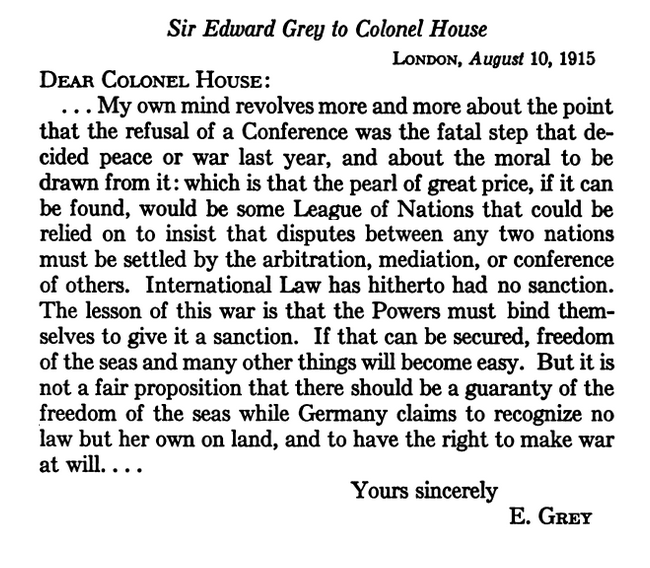 The Intimate Papers of Colonel House, Volume 2, page 87, available to read at Hathitrust
The Intimate Papers of Colonel House, Volume 2, page 87, available to read at Hathitrust
“…would be some League of nations”? – as if it’s just some offhand, spur-of-the-moment idea he had. We now know for a fact this “idea” has been their Ultimate Goal for almost thirty years by this time, six since the founding of the Round Table itself.
The second time that Lord Grey wrote, he is quite a bit more direct.
Did you catch it? The Brits wanted our President to front for them. Pretend like the League of Nations is HIS idea.
Accordingly, on November 9th, Sir Grey cabled to Colonel House to specifically ask if the proposal was to be taken in conjunction with Grey’s proposal for a League of Nations after the war, as made in his letter of September 22. To this, House, with Wilson’s approval, answered in the affirmative. It’s a GO on League of Nations is “my idea” – says Wilson, basically.
OK, now let’s fast forward to 1919, at the end of WWI. The Peace Treaty Conference at Versaille had begun in January, 1919.
President Wilson, presented his Fourteen Points to the Peace Conference, the points included the formation of the League of Nations, just like Sir Grey had requested. The League of Nations falsely portrayed as an American idea – was now making it’s way through Congress.
One week after Wilson “introduced” the League of Nations at the Conference, Borah went to bat against the Brits, whom he knew were the real force behind this League of Nations crap.
Borah Senate Speech, February 21, 1919 Against the League of Nations; you can also see my article about this where I go into his whole speech.
A couple of key excerpts –
Mr. BORAH. Mr. President, the people of the United States have the undoubted right to change their form of government and to renounce established customs or long-standing policies when-ever in their wisdom they see fit to do so.
As a believer in democratic government, I readily acknowledge the right of the people to make in an orderly fashion such changes as may be approved by their judgment at any time.
I contend, moreover, that when radical and important departures from established national policies are proposed, the people ought to be consulted.
We are now proposing what to my mind is the most radical departure from our policies hitherto obtaining that has ever been proposed at any time since our Government was established.
I think the advocates of the league will agree with me that it is a pronounced departure from all the policies which we have heretofore obtained.
…the people are entitled to pass judgment upon the advisability of such a course.
Well, we know what these guys think about ‘the people’, we all need hard labour to complete our evolution remember, and are inferior to our more evolved British/European Lords, rendered incapable of making proper decisions until we have been tamed through hard work. Sarcastically speaking here.
Meanwhile – around this League of Nations battle, you start getting political cartoons like this – which is a correct portrayal of the farce of a “peace” treaty.
And this one correctly portraying the pressure on the U.S. in regards joining the League of Nations.

It wasn’t just Borah or the Americans that recognized the arrogant insanity of this idea. The British people saw through it too.
An MP (Member of British Parliament) named Roden Buxton, said in the Manchester Guardian:
Yet they [The Times] have the effrontery and impertinence to speak as if they are the voice of England.’ He said they were ‘anti-democratic’ and the doctrine of the Balance of Power that they prattled on incessantly about was ‘the doctrine of a small aristocratic clique which dominates the Foreign Office’.
Indeed.
Moving on up to Summer 1919 – Representatives of each country signed the Paris Peace Treaty on June 28, 1919. But for the United States to accept its conditions, however, it had to be ratified by Congress.
The Senate majority leader, Henry Cabot Lodge, a Republican from Massachusetts, opposed the treaty, specifically the section regarding the League of Nations, but he was merely a kind of patsy. Even though he drafted 14 reservations — to match President Wilson’s Fourteen Points. Mr. Lodge’s proposal only reduced the control the league would have over the United States – the League of Nations would still be formed. It’s not too hard to figure out who was yanking his puppet strings – the Brits.
However, there was still the faction of the Senate dubbed the “irreconcilables” by the British slavemaster propagandists. That was led by William Borah, who opposed the Treaty of Versailles PERIOD.
Senator Albert Beveridge of Indiana saw the treaty as raising “the motley flag of internationalism,” and he described the treaty as a plan to “denationalize America and denationalize the nation’s manhood.” – which was correct, it was.
In fact, Borah caught that himself, he excoriated Leon Trotsky in his February speech, on exactly that point – Internationalism, that Trotsky was promoting. Trotsky who was an agent of William Wiseman and MI6 tasked to “agitate” against “Bolshevism”.
Since Internationalism is just another way of saying New World Order or ‘League of Nations’, even if you didn’t know anything else you’d immediately know he was a British puppet just on that point alone.
Borah –
That [Internationalism] is at the bottom of this entire procedure – [the League of Nations and the war itself] whether consciously or unconsciously, upon the part of those who are advocating it.
It will be the fruit of this effort if it succeeds-the dead sea fruit for the common people everywhere.
It is a distinct announcement that the intense nationalism of Washington, the intense nationalism of Lincoln, can no longer serve the cause of the American people, and that –
we must internationalize and place the sovereign powers of this Government to make war and control our economic forces in an international tribunal.
Senators Borah and La Follette were especially targeted for attack by the British propaganda machine during this time period – one thing they called them was “little Americans” – which was apparently some sort of big insult.
[speaking to the President]
Sir, since the debate opened months ago, those of us who have stood against this proposition have been taunted many times with being little Americans.
– Borah Senate Speech November 19, 1919
Senator Robert LaFollette (who earlier exposed the nasty moves by employers against any “unions”), at one point, courageously spoke out about the fact that the treaty was excessively harsh with Germany, and that it was basically guaranteeing future War.
He was very accurate in that statement – it was, and it was intentional.
Colonel House himself wrote that: They [Britain and Lord Balfour] are making it a breeding place for future war.
Balfour’s response admitting that this was the plan: the arrangement is justified not on grounds of nationality but on grounds of strategy.
Senator Lafollette was correct. Not only did the Junta of Three and it’s forest of Round Table front groups, not want Peace – their strategy was to create Future War.
It goes even further than that, taking a few pages out of Walsh’s book here, not only was this seeding the ground for future war intentional, it was considered necessary and beneficial to have War and more War!
For the task of civilisation…requires strife and striving, competition…But its [strife, war, conflicts] greatest influence is apart from collaboration.
It serves the purpose of spurring on to greater effort …it kills off those who lag too far behind… the fittest parents are left over to produce the fittest children.
Strife is thus the weeder-out of the weak and unfit.
…The reference to the destruction of property is mere materialism.
Rather does it [War] retard progress in decay: it is a moral purgative.
As for the loss of life, it seems to be overlooked that every one must die somehow…… Conscription should cover all who can be fathers and if under the hardships the unsound perish, the world can get along without them.
– The Climax of Civilisation by Correa Moylan Walsh, 1917
Putting Walsh quotes into plain english –
- It’s “ill-advised” to think war is bad and peace is good.
- Peace is only war gone covert.
- Destroying people’s homes and entire cities, factories, farms – dismissed as “mere materialism”.
- War is a “moral purgative” – a lovely way of saying kill those bad seeds.
- War retards decay – killing millions of people and taking their stuff is therefore beneficial.
- Everyone has to die some time – so why not a nice violent death? Great!
- War solves over-population – otherwise we would just have to kill babies at birth, it’s one or the other.
- Draft as many possible fathers as you can find
- If any “undesireables” get killed – well friggy-dig it, who needs ‘em anyway.
This brings Walter Lippmann up again, this seeding for future War supposedly as part of ‘civilizing’ man.
Lippmann, due to his well-loved propaganda work, had been catapulted into important roles in the war effort: assistant to the Secretary of War; then secretary of the secret group of historians called The Inquiry (later director), established under Colongel House in late 1917 to plan the “peace” settlement at the end of the war.
The main point of the Inquiry (actually heavily controlled by the British view) was to cruelly dismember Germany, Austria-Hungary and Russia, who of course, once they recovered from the devastating effects of WWI would naturally want to get their territories and power back.
This was a directly intended set-up to have another war, the Inquiry’s plan pretty much set the conditions needed for World War II.
One of the long-term policies of British interference with everyone else’s business, was to support the second strongest, which, of course, is going to understandably (and most likely deliberately) piss off the strongest.
See my article: Origin of the term “Balance of Power”. This article goes into exactly when this started, and how using smaller weaker countries combined to stop anyone from being their equals.
Exactly along that line, the Allies (headed by Round Table Brits, of course) at the end of World War I, deliberately created new “independent” states (that were not) to function as dominions of Britain and France, and be used to help keep the strongest, Germany and Russia, down permanently. It was an impossible task for these new small nations – they were set up to fail.
Plus, the map of Europe was rewritten with the stroke of a pen, suddenly making the Poles, the Czechs, and the Serbs dominant over all the other minority nationalities that were themselves now being forcibly incorporated into the new countries.
This, of course, did not set well with the Germans, Ukrainians, Slovaks, Croats, Slovenes, etc. also guaranteeing that they would be easy pickin’s for the next war planned that would theoretically pit Germany and Russia up against the “allies” yet again – World War II.
Remember, we have Colonel House and Walter Lippmann all closeted up under the influence of Prime Minister Balfour and Special Intelligence-man William Wiseman in The Inquiry – whose resulting idea of a “just and careful peace” was dismembering Germany, Russia, etc., and pitting small nationalities against each other.
All of which was part of Balfour’s strategy (as he called it) – a strategy that deliberately set the stage for World War II.
So when I pointed out how correct Senator LaFollete was in saying that the treaty was excessively harsh with Germany, and that it was basically guaranteeing future War, you see what I mean.
In typical blathering and incorrect targeting, the Round Table mouthpieces began trying to position LaFollette as a soviet-loving pro-German to try and discredit his accurate statements about who and what were pushing this War.
He was even nefariously positioned (indirectly) as being a “Communist” trying to rule-the-world, during the time of the whole “Red Bible” propaganda.
See these news articles – first is The News and Observer January 1919 – second is Brooklyn Daily Eagle November 1919.
Notice the headline on the first one – cute, real cute. Also notice that LaFollette exposes that the Creel Committee (The Committee on Public Information or CPI) is mixed up with propagandizing the “red scare” as well. Considering it’s deal-with-the-devil with British Intelligence (Crewe House) – he certainly nailed that one right on the head.
On the second one, look at the positioning of the section – names on ‘Radicals’ mailing lists – It lists Follette, via his daughter, as being somehow supportive of the insane “Red Bible” Protocols being advertised in other articles and the I.W.W. (Industrial Worker’s Union). See Red Bible post for many more examples of articles from this time period.
Please also notice that “Chairman Lusk” part of the article – that’s the Lusk Committee “investigating” all this (including harassing Senator Lafollette). One of their informers was Boris Brasol, Wiseman’s Ohkrana asset planted in the MID (Military Intelligence).
I included the two articles above to acquaint you with the tactics employed against those deemed “enemy of the state” – the British commonwealth union of the world state.
In September of 1919, when after a summer of failure to overcome Senate resistance to the Treaty, President Wilson left on September 3, and began traveling across the nation by train, fighting for the Brits League of Nations.
Senator Borah and Senator Hiram Johnson from California, dogged his every step across the country – speaking after him every time he stopped to try and convince the people of the “value” of the League of Nations. Wilson grew weary, and by the end of the month he was back in the White House, having had a stroke. And he remained bedridden for the remainder of his presidency!
The British Slavemasters were now really pissed off at Borah for their utter failure to rally support for the League of Nations.
This is actually when the “red scare” actually was fomented. What happened next was that on September 16, 1919, Senator Lodge called the treaty up for consideration by the full Senate. As it became clear that there would be no compromise, no instant approving of the Treaty, the Slavemaster propagandists began their “death dance” – as I call it.
Calling on Wiseman assets Leon Trotsky, Sydney Reilly, Casimir Pilenas, and Boris Brasol, something called the “Red” Bible was created, complete with “Protocols” points, and tied to the I.W.W supposedly as its source.
The Round Table propaganda machine kicked in using the London Times-Public Ledger Cable Service. Articles by Carl W. Ackerman (himself a British slavemaster journalism asset and friend to Colonel House) began appearing all over the U.S. – leading up to a raid by the MID (where Casimir and Boris had been planting “reports” concerning Bolshevists starting earlier in 1919) on the I.W.W. in Indiana.
This is what was called –The RED Scare, and now you know who started it. The slurry of articles looks like it began right around October 24, 1919.
The articles like this continued well into November – for more examples, please see The “Red” Bible
These articles and the so-called “materials” they contained, would be used to accuse and harass anyone who wasn’t on-board with the Slavemasters plan. Senators Borah, La Follette, as an example, were portrayed as being “commies” and Pro-Soviet. With Borah, it even went so far as to actually using British assets (deep cover agents) to forge documents trying to show he took money from the Russians and Germans!
So, here’s these “strikes” and “riots” and “We vunt to rule ze World” propaganda flying everywhere, positioning anyone against allying with Britain etc as being communists/bolsheviks…and the Senate STILL couldn’t be overwhelmed, scared, or railroaded into approving the stupid Slavemaster Treaty.
I think that’s pretty damn impressive.
By November 15, the chamber was still considering the treaty when, for the first time in its history, the Senate voted to invoke cloture – to cut off debate – on the treaty.
And then four days later –
November 19, 1919 – the famous debate over Senator Lodge’s 14 Reservations versus Wilson’s 14 Points.
Mr. President, there is another and even a more commanding reason why I shall record my vote against this treaty. It imperils what I conceive to be the underlying, the very first principles of this republic.
It is in conflict with the right of our people to govern themselves, free from all restraint, legal or moral, of foreign powers.
…You cannot yoke a government whose fundamental maxim is that of liberty to a government whose first law is that of force and hope to preserve the former.
You may still keep for a time the outward form, you may still delude yourself, as others have done in the past [referring to the British especially] with appearances and symbols, but when you shall have committed this republic to a scheme of world control based upon force, upon the combined military force of the four great nations of the world, you will have soon destroyed the atmosphere of freedom, of confidence in the self-governing capacity of the masses, in which alone a democracy may thrive.
We may become one of the four dictators of the world, but we shall no longer be master of our own spirit.
The “Big 4″ of the Paris Peace Conference of 1919 were (left to right) Lloyd George of England, Orlando of Italy, Clemenceau of France, and Woodrow Wilson of the United States.
But your treaty does not mean peace far, very far, from it. If we are to judge the future by the past, it means war.
– Source: Record, 66 Cong., I Sess., pp. 8777-8778; 8768-8769, 8781-8784.
That very same day of his speech – the Treaty was voted down.
The actual first appearance of the Protocols of Zion, the harbinger propaganda for the next War already being planned for, happened just 3 months after Senator Borah and the “irreconcilables” had shot down the Peace Treaty – and the League of Nations with it.
Ah, but the work on it had begun in November, when Casimir Pilenas arrived to London, because the Preface in this first publicized appearance of the Protocols – in The Times no less –
Is dated December 2 1919.
Less than two weeks after Borah’s famous speech.
Borah’s speech, in addition, was beginning to expose that the same people behind the League of Nations – the Brits – were behind Trotsky and “Internationalism”.
Now that’s very, very important, because this is probably the number one thing that these people hate, is having their nasty plans traced back to them and exposed.
So, hence the big push for “world conspirators” to blame, misdirecting attention off of them and setting the new “enemy” for the Germans and Russians to tie themselves up in knots against – AS WELL AS THE AMERICANS WHO RESIST THEIR PLANS – as you are soon about to see.
A fact that did not go unnoticed by at least one author, Lucien Wolf, who wrote in 1920 –
…a curious story is current that the translation of the Russian forgery on which the theory of that journal mainly rests was actually made in the Intelligence Department of the War Office.
– THE MYTH OF THE JEWISH MENACE IN WORLD AFFAIRS or THE TRUTH ABOUT THE FORGED
PROTOCOLS OF THE ELDERS OF ZION, by Lucien Wolf, preface written November 1920, book published February, 1921.
You can just imagine, even now, the smug look on their faces whenever some well-meaning questioner of what is REALLY going on in the world, latches onto the conveniently planted JEW-ILLUMINATI-ALIEN conspiracy propaganda.
And that’s the reason I am writing this Just Dox article, to put the responsibility back where it belongs, minus that kind of intentional misdirection.
Next, after the U.S. Senate, with Borah leading the opposition, shot down the Peace Treaty in late November, there are all these backdoor machinations going on of re-arranging Germany’s government, and then pop-goes-the-Hitler!
Making his first bid for power in February of 1920.
Meanwhile, the next month, March 19, the Senate rejected for the second time the Treaty of Versailles, by a vote of 49-35, falling twenty votes short of a two-thirds majority needed for approval.
The New York Times headline for the day read:
Senate Defeats Treaty, Vote 49 to 35; Orders it Returned to the President
Senator Borah and the other irreconcilables were exceedingly well satisfied.
– NY Times
The vote of March 19, 1920, held on a version with reservations, was the final vote on the treaty.
The March 20 New York Times reported, “After the session ended senators of both parties united in declaring that in their opinion the treaty was now dead to stay dead.”
It wasn’t until 1921, that Congress passed a resolution, known as the Knox–Porter Resolution, to formally end the war with Germany. The United States would never join the League of Nations.
And that is exactly when we start getting the new new American sister groups being formed in the U.S. – the Council on Foreign Relations and the Williamstown Institute.
Within a year, in 1922, Walter Lippmann was busily trashing democracy itself, after that crushing defeat that the Round Table had just suffered, delivered by a man from my neck-of-the-woods no less – Idaho!
Note: their “bible” author – Walsh – was just death on rule in the hands of the people of the kind that Thomas Jefferson envisioned. There is example after example of finding different ways to trash those ideals, which to me, is another dead-giveaway of just who this man is working for.
Lippmann, working for Morgan as editor of the New Republic, was right on par with those kind of attacks.
It is no longer possible, for example, to believe in the original dogma of democracy; that the knowledge needed for the management of human affairs comes up spontaneously from the human heart.
…It has been demonstrated that we cannot rely upon intuition, conscience, or the accidents of casual opinion if we are to deal with the world beyond our reach.
— Walter Lippmann, Public Opinion, Chapter XV, 1922
The dogma of democracy, you see, like it’s a religion or something that we all need to rise up against. See what that is attempting to do? Create a revolt against Democracy!
The following year, 1923, the term Chatham House, became synonymous with the RIIA. This came about because Lionel Curtis pressed Canadian Colonel R.W. Leonard to buy a building for the RIIA named Chatham House, located at 10 St. James Square (City of Westminster) in London. Lionel then headed up the “Research and Press Department”.
Then, in September 1938, the RIIA began to act as “adviser” to the Foreign Office. When the war began a year later, this relationship was formalized.
The RIIA then became the “Research and Intelligence Department” of the Foreign Office – which…was dominated by Lionel Curtis and Arnold Toynbee.
Arnold J. Toynbee
Starting just after WWI, the original secret society has been referred to as “The Times crowd,” “the Rhodes crowd,” the “Chatham House crowd,” the “All Souls group,” and the “Cliveden set.”
All of these terms were more or less inadequate, because they focused attention on only part of the society or on only one of its activities. The Milner Kindergarten and the Round Table Group, for example, were two different names for The Association of Helpers and were thus only part of the society, since the real center of the organization, The Society of the Elect, which Milner headed, continued to exist and recruited new members from the inner circle as seemed necessary. This has continued all the way down until today.
Starting especially after 1922, we start seeing the Astors taking a more prominent role in this secret society.
Before we continue, I offer a brief Astor genealogy of the parties that will play a key role – Vincent and Waldorf.
John Jacob Astor III (JJ3) and William Backhouse Astor, Jr. (1829–1892) were brothers. Waldorf Astor was the son and designated heir of JJ3, making him the richest member of the family. John Jacob Astor IV (JJ4) – the one that died on the Titanic in 1912 – was the son of William Backhouse Astor. Waldorf was jealous of JJ4’s mother, who despite the fact that she was not married to “the” Astor – meaning the richest Astor, him – she insisted on referring to herself as “the” Mrs. Astor and was more socially prominent in the U.S. than was Waldorf.
Waldorf took himself and his objections off to England, working directly with the Round Table cabal of lesser slavemasters (buying newspapers they wanted him to, and so on) and was then elevated and given knighthood and a title. Waldorf was socially inept, and was subject to a muckraking campaign by “the” Mrs. Astor, and was so bothered by this that in the summer of 1892 he actually faked his own death by having his staff report to American reporters that he had died, apparently from pneumonia.
Of course, it was soon found out that he had lied thereby earning him even more mocking in the press.
William Waldorf Astor
Upon inheriting his father’s money in 1890, and running off to England around a year later, he first rented Lansdowne House in London until 1893. That year he purchased a country estate at Cliveden-on-Thames in Taplow, Buckinghamshire from the Duke of Westminster.
In 1895 he bought the gothic mansion on the Victoria Embankment at Two Temple Place overlooking the Thames River. He commissioned an extensive $1.5 million renovation of what was to become a “crenellated Tudor stronghold” for managing his holdings. This is what was known later as Cliveden. He sent England’s blue-bloods into a spin because by doing so this upstart from the Colonies bought his way into their ranks.
Shortly after his arrival in England – the same year he tried to pretend he was dead – for the purposes of this article it is interesting to note that the first thing he was instructed to do was to purchase the Pall Mall Gazette in 1892.
Considering that had been the vehicle dominated by William Stead and his protegees (one of which was Lord Milner), and that Stead had only just left the Gazette a year earlier to start the Review of Reviews, I think that this was some sort of “counter” or controlled opposition move to the success (and out of control aspect) of Stead and his new paper. Not to mention the series of articles done in the Gazette by Stead not long before this, where he was exposing human trafficking of virgins for the rather jaded sexual tastes of the British nobility, this was also probably an attempt to put the press “back on track”.
Shortly after Astor bought the Gazette, he established the Pall Mall Magazine in 1893. He later acquired the Observer, and in 1914 made a present of the Gazette and the Observer to his son Waldorf Astor.
Waldorf Astor
In 1903 he acquired Hever Castle near Edenbridge, Kent about 30 miles south of London. The huge estate built in 1270 was where Anne Boleyn lived as a child. Queen Victoria made the announcement that she “was astonished” when Astor took this next step and purchased Hever Castle just up the road from the Cliveden estate.
Astor invested a great deal of time and money to restore the castle, building what is known as the “Tudor Village,” and creating a lake and lavish gardens. He also added the Italian Garden (including Fernery) to display his collection of statury and ornaments. He gave it to his eldest son Waldorf Astor and his new daughter-in-law, Nancy Witcher Langhorne, as a wedding present In 1906.
Hever Castle
Note: John Jacob Astor IV (Titanic), his sister Helen Scherhorn Astor married the half brother of Franklin Delano Roosevelt, James Roosevelt (“Rosy”) Roosevelt. This makes a blood tie of sorts, between JJ4 son Vincent Astor, who would form The ROOM secret intelligence group.
Viscount Waldorf Astor, also close to the center Round Table Group from its first beginnings (and much closer than Lord Halifax at this time), moved rapidly to the center of the Group after 1916 shortly before the death of his father when he would be inheriting all his money. He became increasingly a decisive voice in the Group.
Waldorf was a member of the Round Table. He and his wife Nancy lived in a large estate called ‘Cliveden’.
The Astors held regular weekend parties and the group that attended them became known as ‘the Cliveden set’.
It included –
Lord Halifax, Edward Wood (member of Round Table)
Lord Lothian, Philip Kerr (member of Round Table)
Lionel Curtis (member of Round Table)
Robert Brand (member of Round Table)
Geoffrey Dawson (member of Round Table, editor London Times)
Samuel Hoare (Foreign Secretary, MI 6)
Nevile Henderson (British ambassador to Berlin, Germany)
Edward Algernon Fitzroy (Speaker of the House of Commons)
Most members of the group were charged with nurturing Adolf Hitler along – after all, he was the chosen poster boy for the next war the British slavemasters were arranging. The Round Table men arranged World War II by financing Nazi Germany and bringing Hitler to power. See Scientology Roots Chapter Twenty Two – New World Order and Nazi Germany.
As you can see, Waldorf Astor was an important member of the Round Table. His wealthy relative in America was William Vincent Astor.
In 1921 Franklin Delano Roosevelt got polio and would soak his legs in Vincent Astor’s heated swimming pool. 25
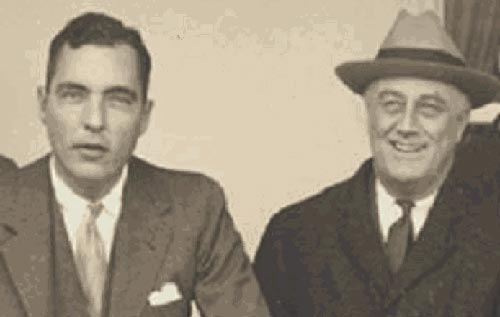 William Vincent Astor and Franklin Delano Roosevelt
William Vincent Astor and Franklin Delano Roosevelt
When Franklin Roosevelt was Assistant Secretary of the Navy, he created a private intelligence network called the Naval Reserves. Roosevelt selected his wealthy socialite friends for the Naval Reserves, who were all pro-British. Vincent Astor was made a Commander in the Naval Reserve.
Franklin Roosevelt and his Naval Reserve pals knew and worked with William Wiseman, who in turn worked under Foreign Secretary Sir Edward Grey, our erstwhile Round Table promoter of the League of Nations.
Vincent Astor moved to the forefront of New York’s fast-paced society world. Astor and his socialite friends required a retreat where they could gather in private to discuss current political, financial and international topics. Thus in 1927 they formed a secret society called The ROOM, which met monthly in an apartment at 34 East 62nd Street in New York City, complete with unlisted telephone and mail drop.
This was yet another thinly veiled front group of the same secret society that sought that Ultimate Goal of a British commonwealth of nations.
The ROOM’s founders kept the existence of their little gathering from everyone except a few select friends. New membership was restricted to men who shared all the attributes and ideas of the original members. At their monthly meetings, ROOM members gathered for dinner and conversation. When members returned from their continual series of world travels, they reported observations to The ROOM. 29
The ROOM was an outcropping of the previously formed Naval Reserves. The Naval Reserves was a private intelligence network of Franklin Roosevelt and Vincent Astor’s wealthy socialite friends who were all pro-British.
The ROOM was the forerunner of the Office of Strategic Services (OSS) – which was the forerunner of the Central Intelligence Agency (CIA).
The most significant ROOM members were –
William Vincent Astor (family connection in Round Table)
William Wiseman (head of MI 6 in America)
William Donovan (Chief of OSS)
David Kirkpatrick Este Bruce (Chief of OSS in Europe)
Robert Gordon McKay (member of OSS)
Charles Suydam Cutting (member of OSS)
Frederick Trubee Davison (member of CIA)
Somerset Maugham (MI 6 agent)
Clarence L. Hay (Naval Reserve intelligence agent)
William Rhinelander Stewart (U.S. Office of Naval Intelligence)
Other important Room members were –
Winthrop Williams Aldrich (son of Nelson Aldrich – who helped enact federal reserve system)
Nelson Doubleday (publisher, friend of MI 6 agent Ian Fleming)
Barklie McKee Henry (schooled at Oxford University)
Kenneth B. Schley (close friends with Duke and Duchess of Windsor)
H. Nugent (Kermit Roosevelt’s close English friend)
Reginald Fincke (his daughter married a British nobleman)
Oliver Dwight Filley (pilot with the Royal Flying Corps in World War I)
Kermit Roosevelt Sr. (son of American President Theodore Roosevelt, joined the British Army)
Theodore Roosevelt Jr. (son of American President Theodore Roosevelt)
William Wiseman, head of MI 6 in America, was a ROOM member. 32
British author Somerset Maugham was a ROOM member. William Wiseman had recruited Maugham into MI6 in 1916. He used book writing as a cover for doing intelligence work.
All ROOM members were pro-British and The ROOM had a purpose to promote Anglo-American ties. 24
Some ROOM members belonged to the Explorers Club in New York City. ROOM members often used sailing trips, or “scientific expeditions” and “world exploration” as a cover for intelligence work. ROOM members who belonged to the Explorers Club were –
Charles Suydam Cutting
Theodore Roosevelt Jr.
Kermit Roosevelt
Clarence L. Hay
A couple of examples are Kermit Roosevelt Sr. and Theodore Roosevelt Jr. went on an intelligence mission across the Himalayas into China. Their cover was “in search of the legendary big-horn wild sheep called Ovis Poli”. Charles Cutting went to Llhasa Tibet under the cover they were “searching for the Giant Panda” – their actual mission had to do with the Shambhala Project. 39
The entire atmosphere surrounding The ROOM resembled that of an intelligence office. It’s code name was The Club.
By the 1930s, the misnamed “Cliveden set” headed by Vincent Astor’s cousin Waldorf, was close to the center of the society, but it was nowhere near the real power that the Milner Group still held as a whole. As covered previously, the core of the secret society should rather be pictured as utilizing the Astor money to further their own ideals rather than as being used for any purpose by Waldorf Astor and the “Cliveden Set”.
In 1932 a catalyst appeared to unify and set into action this group of powerful men who were ROOM members – Franklin D. Roosevelt was running for president. 29
That same year, Franklin Roosevelt visited Cliveden and met with the Round Table members there. The real support, of course, came from that same core group of the secret society, however, but with their support he successfully ran for office as American President from 1933 to 1945.
Starting that same year of 1933, Vincent Astor served as the intermediary for intelligence gathered by ROOM members and their agents, forwarding intelligence directly to FDR.
Meanwhile, William Wiseman was assigned to Hollywood where he used his influence to encourage a favorable portrayal of the British Empire in American films. Throughout the decades MI 6 agents authored spy stories to glamorize British intelligence agents. Somerset Maugham and L. Ron Hubbard in the 1930s, Ian Fleming in the 1950s, John le Carré since then. All of these authors were MI 6 agents. 43
Around 1931 when Philip Kerr officially became Lord Lothian, he (and the other fine people arranging the world for the rest of us) was hard at work setting up another War.
Note that this was purely because the first one had failed to produce the result of U.S. acquiescence to the British World Plan.
One of the main lines of propaganda that began being spread, was that nationalism was the cause of wars. I’m sure you now understand why that was put in the way that it was, but I think it merits an explanation anyway.
By “nationalism” what was being referred to was individual countries that were not exactly chomping at the bit to become another “dominion” of the British. So, to say that nationalism was the cause of wars – was extremely self-serving on their part.
Basically, the idea was that the people in the world were supposed to be so horrified by this next planned war [WWII] that they would gladly accept world government as a solution to wars – it was behavior modification by war.
Round Table members both in the U.S. and in Britain (particularly the City of London) were financing the rise of Adolf Hitler and Nazi Germany, and it’s platform of eugenics and Aryan supremacy had been previously created and financed in England and then out-sourced to the U.S. and to Germany.
So, it’s not much of a surprise to see that just two years after the pounding of the drum about “nationalism” began, that the perfect poster boy advocating nationalism, Hitler, came to power as dictator of Germany in 1933. The ‘bad guy’ was now cast, with the support of both the Catholic Church and the British slavemasters, I might add, as they were both in danger of losing their hold upon the world.
The activities of these men, in preparing for this next War they had planned, is extensively documented in my BSC compendium. Please see our World Government section and look under “B” for these articles.
By 1934, things were moving along regarding backdoor support of preparing Hitler to go to war.
…November 1934 … the Milner Group (Round Table) had already indicated to Hitler officially that Britain was prepared to give Germany arms equality. Hitler was given ample assurance by the Milner Group, both within and without the government, that Britain would not oppose his efforts “to achieve arms equality.” Four days later, Hitler announced Germany’s rearmament, and ten days after that, Britain condoned the act by sending Sir John Simon on a state visit to Berlin.
In these actions …Hitler was running no risk, for the government and the Milner Group had assured him beforehand that it would accept his actions.
– The Anglo-American Establishment by Carroll Quigley, professor of history
In September 1935, the Round Table journal stated:
“…it (Round Table) has never abandoned its view that the only final basis for freedom and enduring peace is the organic union of nations in a commonwealth embracing the whole world…”
– Round Table Journal, article: First 25 Years, Vol. 25, Issue 100, September 1935
And there you have it, an exact re-statement of the same goal that has been there all the way since the 1800’s when Cecil Rhodes first expressed it.
As a reminder, remember just what commonwealth actually means here. It has a very specific meaning.
Commonwealth of Nations – …the now independent components of the former British Empire and Britain’s remaining dependencies are described as the Commonwealth of Nations. Even though the “now independent components” have their own internal governments, their external relations are governed by Britain. 2
The Round Table front group in America is the Council on Foreign Relations. It makes America part of the British Empire. The CFR is the means for Britain to determine America’s external relations – thereby covertly having America being part of the British “Commonwealth of Nations”.
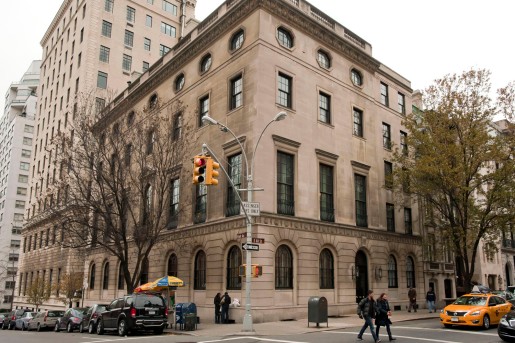 Council on Foreign Relations
Council on Foreign Relations
That same year, 1935, the Round Table introduced a new propaganda slogan for their Plan to rule the world – New World Order.
In the House of Commons in October 1935, Leopold Amery, one of the founding members of the Round Table, attacked the use of force to sustain the League of Nations. If you remember what Borah said in his speech that defeated the League of Nations, that was exactly what he referred to Britain and this League of Nations as being like.
…You cannot yoke a government whose fundamental maxim is that of liberty to a government whose first law is that of force and hope to preserve the former.
You may still keep for a time the outward form, you may still delude yourself, as others have done in the past [referring to the British especially] with appearances and symbols, but when you shall have committed this republic to a scheme of world control based upon force, upon the combined military force of the four great nations of the world, you will have soon destroyed the atmosphere of freedom, of confidence in the self-governing capacity of the masses, in which alone a democracy may thrive.
– Source: Record, 66 Cong., I Sess., pp. 8777-8778; 8768-8769, 8781-8784.
Leopold Amery
Leopold Amery said:
From the very outset there have been two schools of thought about the League… There has been the school …that regards the League as a great institution, an organization for promoting cooperation and harmony among the nations, . . . provided always that it did not have at the background the threat of coercion.
There is another school which thinks that the actual Articles of the Covenant, concocted in the throes of the peace settlement and in that atmosphere of optimism which led us to expect ten million pounds or more in reparations from Germany, …that they have introduced a new world order…
The Covenant, I admit, as originally drafted, embodied both aspects and it was because the Covenant contained the Clauses that stood for coercion… that the United States. . . repudiated it. From that moment the keystone was taken out of the whole arch of any League of coercion….
– The Anglo-American Establishment by Carroll Quigley, professor of history
Not only is he honing in on one way Borah defeated them (without acknowledging him, of course), but there is your first public mention of the term New World Order.
The Round Table originated the term.
They want their world government to be able to apply coercion, through economic sanctions and military action. But the population was against it, so their strategy was to delay the idea until they could use their propaganda to get the idea accepted. This statement by Amery was the beginnings of attempts to re-spin the idea, and if anything, it purely means that they know that they got exposed for what their real goals were, and have always been, and are trying to get back to having that be covert and attention misdirected onto some new fluffy propaganda.
Which is exactly what they did.
I hope this article has helped you to understand more clearly, that the Round Table, and more importantly what it represents, was indeed a conspiracy by very definition. A conspiracy which still exists, still has the same goals, still has the same cavalierly attitudes towards humanity, and still needs (and deserves) de-powering.
Virginia McClaughry
.
References (numbering is out of sequence temporarily)
2. New Columbia Encyclopedia
24. Society Chameleons by Raymond E. Spinzia
Burton Hersh, The Old Boys: The American Elite and the Origins of the CIA (New York: Charles Scribner’s Sons, 1992), p. 17, and Lawrence E. Gelfand, The Inquiry: American Preparations for Peace, 1917-1919 (New Haven: Yale University Press, 1963), pp. x, xi. Rhodri Jeffreys–Jones, pp. 54, 74.
25. F.D.R.: His Personal Letters. 1928-45 (3 vols.; New York, 1950), I: 33-34
29. The Roosevelt-Astor Espionage Ring by Jeffery M. Dorwart, professor of history; K. Roosevelt memorandum to ROOM members, July 19, 1929, box III, Kermit Roosevelt Papers; Kermit to Bunny Head, Nov. 12, 1935, box 53, Kermit Roosevelt Papers.
32. Profits of Peace: The Political Economy of Anglo-German Appeasement by Scott Newton
43. The CIA’s role in Hollywood – Tom Secker August 9, 2013
54. Churchill’s Secret War by Madhusree Mukerjee


